MAKING NOISE FOR EDUCATION
Massive crowd turns out in support of public education

BARGAINING BEGINS
What’s at stake and how to stay engaged
SUMMER 2023 | VOLUME 89, NO. 4
4
PAGE
+
PAGE 8
SUMMER 2023 | VOLUME 89, NO. 4
ISSN 2816-3885 (Print)
ISSN 2816-3893 (Digital)
The Saskatchewan Teachers’ Federation Bulletin is published four times during the school year and is distributed both electronically and in print.

Have a story idea or a topic you would like us to include? We’d love to hear from you. Reach us at stfcommunications@stf.sk.ca
For our current advertising rate card or to book an advertisement, please contact stfcommunications@stf.sk.ca.
Editor: Courtney Forseth, Managing Director of Communications and Public Relations
www.stf.sk.ca
©20 23 . For permission to reprint, please contact the editorial office. Indexed in the Canadian Education Index ISSN 0036‑4886.
Member of the Canadian Educational Press Association and the Educational Press Association of America.
Cover image: Adam Reiland Photography
@SaskTeachersFed
ADAM REILAND PHOTOGRAPHY
President’s Update 3 Saskatchewan Made Noise for Public Education 4 Working for You – Provincial Collective Bargaining Underway 8 Teachers Inspire – This Year’s Winners of the Arbos Awards Are Advancing Education With Dedication and Passion 11 Class Size and Complexity –Students Pay the Price 14 Principals’ Notes – Moving From Good to Great Leadership Through Self-Awareness 18 Upcoming Events 20 Reconciliation in Action – More Than Words: Lawson Heights School on a Journey of Indigenous Learning 22 For You and Your Family – Now’s the Time to Start Voluntary Contributions to the STRP 2 5 First-Ever Leadership Symposium Draws Sold-Out Crowd 26 Collective Wisdom – Why I Made Noise for Public Education 28 Laird Cares Program 30 Meet Your Executive 32 In the Classroom – New Offering Explores Treaty Outcomes Through Play in the Early Years 36 Addressing Teacher Mental Health Begins in Schools 38 Superannuated Teachers of Saskatchewan Celebrates 50 Years 39 Read more about the rally on page 4.
Table of Contents
Saskatchewan teachers, you answered the call. On April 29, more than 3,500 people, including parents, students and concerned citizens gathered at the Saskatchewan Legislative Building in Regina to make noise for public education. The rally has been called “the biggest rally at the legislature since medicare.” The large turnout clearly shows just how much Saskatchewan residents value and support quality public education that is properly funded. It also signals how severe the problems are and the impact a decade of underfunding is having on Saskatchewan classrooms. As you prepare for summer break, let this incredible show of public support serve as a reminder that your work is important and the public recognizes and values the impact you make on students every day. You make a difference.
As the school year winds down, bargaining is now officially underway. The first meeting between the Teachers’ Bargaining Committee and the Government Trustee Bargaining Committee was held in May. Even prior to the 2023 24 provincial budget, this was anticipated to be a difficult round. The budget further solidified this probability. After paying down $1 billion in debt and still having a $1 billion surplus, government provided what amounts to more cuts to education. The budget shortchanged Saskatchewan students, and forces school divisions to make even more cuts. It has been met with criticism and disappointment throughout the sector.
Your Teachers’ Bargaining Committee and the Saskatchewan Teachers’ Federation Executive are well prepared for this round of negotiations. Your support and action are also needed. What happens at the bargaining table is important but is only a portion of what influences bargaining outcomes and our next Provincial Collective Bargaining Agreement. It is crucial for teachers to stay informed and up to date. Contact the Federation with questions and concerns, so we can continue to speak with a unified voice and demand better for our profession and public education.
As we head down this path of bargaining, I would like to extend my sincere gratitude for the faith you have put in me by allowing me to continue to serve as your President. It is an honour to represent Saskatchewan teachers and a role I take on with great pride and determination to serve our collective interests. I look forward to continuing to work with each of you to create positive changes for the future of public education, our students and the future of this province.
I wish you all a great end to the school year and a restful summer break. For those of you superannuating this year, thank you for your contributions and dedication. Enjoy your next chapter!
Samantha Becotte President, Saskatchewan Teachers’ Federation

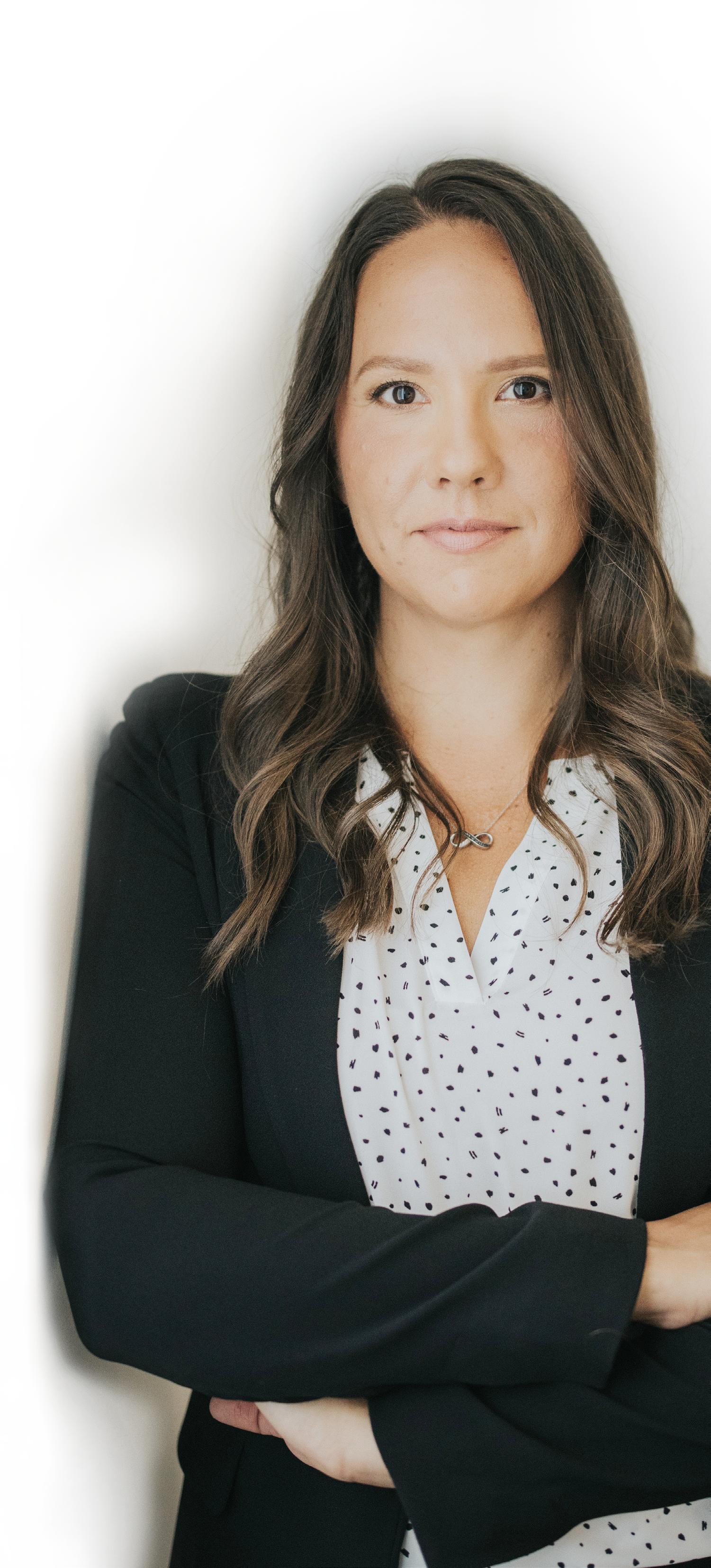
PRESIDENT’S UPDATE BRITTANY BELLAMY
3
Saskatchewan
BY MITCHELL HAPP, STF COMMUNICATIONS

On April 29, over 3,500 students, teachers, parents, concerned citizens and other public sector workers gathered at the Saskatchewan legislature in Regina to make noise for public education, in what Murray Mandryk, columnist with the Regina Leader-Post, called the “biggest rally at the legislature since medicare.”

Thousands of people from every corner of the province travelled to Regina, highlighting the widespread issues underfunding is causing within our schools, regardless of the community. Speakers included parents, students, recent graduates, labour leaders and elected school board trustees from Regina. The message was loud and consistent: students deserve better and the government must act.
The public education system in this province in under immense pressure. With ever increasing enrolment, a growing number of students with complex needs, and a steady decline in funding and classroom support, the situation in our schools is becoming critical. Urgent and decisive action is necessary to safeguard the future of public education and to ensure that students receive the quality education they deserve.
Saskatchewan Teachers’ Federation President Samantha Becotte expressed her frustration with the province’s education funding and the fall from first in per student funding to eighth. She also reminded the crowd we all have a vested interest in funding public education.
4
RALLY PHOTOS BY ADAM REILAND PHOTOGRAPHY (unless otherwise noted)
“Whether you are a business owner who needs smart, well trained workers, or a baby boomer who needs a wise doctor, or a child who needs a well trained and compassionate daycare worker – it all starts with public education,” says Becotte.
School divisions are responsible for the delivery of public education, relying solely on funding from the provincial government. Sarah Cummings Truszkowski, board vice chairperson of Regina Public Schools, put the 2023 24 budget into perspective.

“The net real increase for all school divisions here in Regina and across Saskatchewan amounts to less than $14 million among 27 school divisions. That’s only a 0.7 percent increase. Presently, we are living with record inflation and record enrolment growth. Less than 1 percent investment in public education at a time of record government surplus,” says Cummings Truszkowski.
These cuts have been felt by students, teachers and parents across the province. Trina Hodgson, a parent and registered social worker, emphasized that the continued neglect of children’s education will have long term negative consequences for everyone in the province. She
called upon the government to provide predictable and reliable funding to the education system, as teachers and parents are exhausted by the persistent issues that plague it.
Anya Peppler, a Grade 11 student at Balfour Collegiate in Regina, also addressed the large crowd. Peppler expressed her frustration that chronic underfunding means programs are being cut and therefore taking away options for her future.
“More and more of us are not able to access what we need to reach our potential. Each year there are more cuts that take away what we need to succeed and are limiting our futures,” says Peppler.
Shauna Weninger, board chairperson of Regina Catholic Schools, echoed Peppler’s comments and emphasized how urgent and dire the situation is.
“Students, employees, families and communities deserve better. You – every single one of you – deserve better,” says Weninger. “If we don’t build and support the learning environment that our students and employees need now, when will we? They need to learn, grow and play today.”
FEATURE 5
Top: Anya Peppler, Grade 11 student at Balfour Collegiate in Regina, shares how cuts are impacting her.

Middle: Sarah Cummings Truszkowski, board vice-chairperson, Regina Public Schools.
Bottom: Thom Thunderbears from Thom Collegiate.
The rally served as a call to action to Premier Scott Moe, Education Minister Dustin Duncan and all elected MLAs, demanding immediate and sustained change for the betterment of education in Saskatchewan. The stress that chronic underfunding is putting on the public education system is being felt throughout every community in this province. Students, teachers, parents, and everyone who calls Saskatchewan home must demand government provides sufficient and predictable funding for our schools.
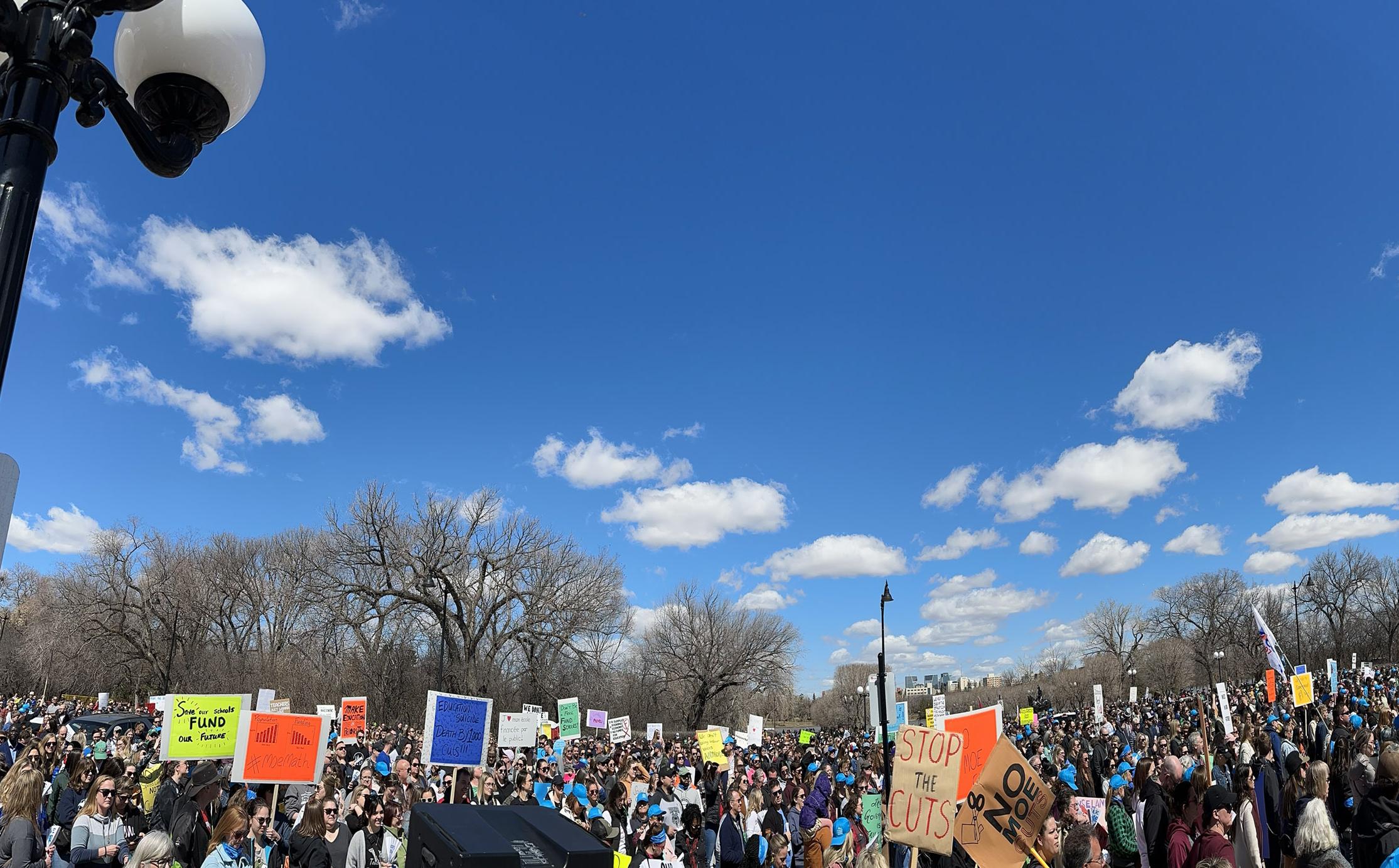
As the rally drew to a close, Becotte thanked the crowd and called for everyone to keep the momentum after the rally and continue to demand better from the provincial government.
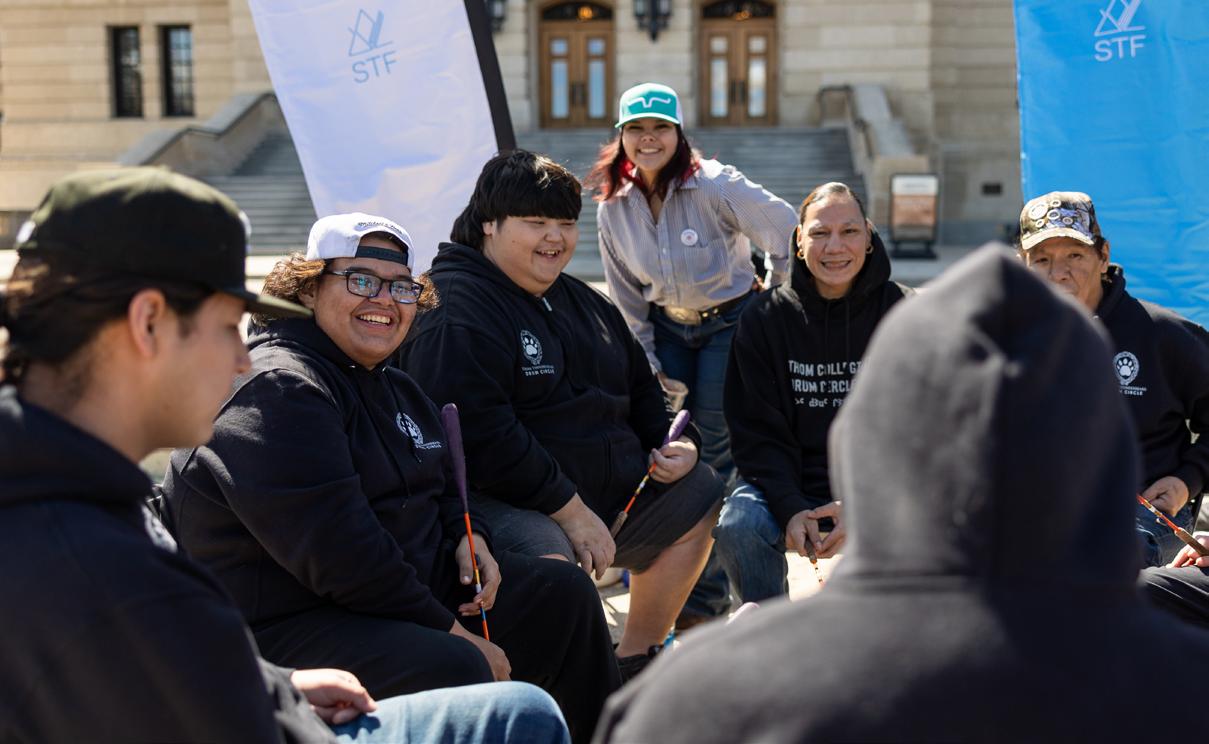
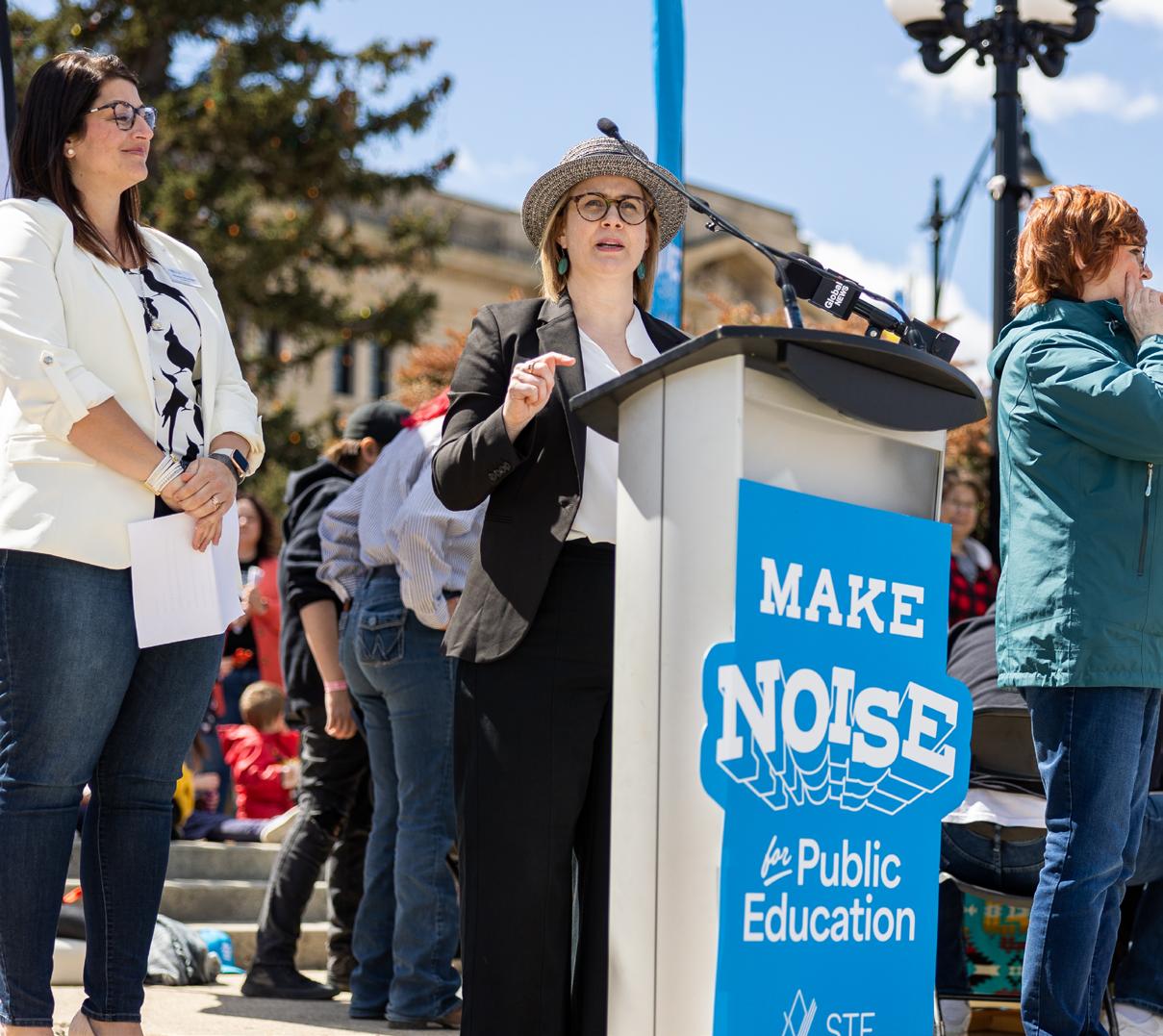
“The only way we are going to change things in public education is if our elected officials begin to realize that everyone – parents, children, grandparents and teachers – begin speaking out with one voice,” Becotte urges. “We are standing up and saying enough is enough. It’s time to make some serious re investments in public education after years of neglect.”
The rally included performances by the Thom Thunderbears from Thom Collegiate and a total of 13 speakers, including:
• Samantha Becotte, President, Saskatchewan Teachers’ Federation
• Nathan Bromm, rural school principal; Vice President, Saskatchewan Teachers’ Federation
• Shauna Weninger, board chairperson, Regina Catholic Schools
“We are standing up and saying enough is enough. It’s time to make some serious re-investments in public education after years of neglect.”
6
• Sarah Cummings Truszkowski, board vice chairperson, Regina Public Schools
• Maureen Johns, Indigenous education professional
• Judy Henley, president, CUPE Saskatchewan
• Lori Johb, president, Saskatchewan Federation of Labour
• Laura Walton, CUPE Ontario School Board Council of Unions
• Carla Beck, Leader of the Official Opposition
• Jayden Bissky, graduate of École St. Mary in Prince Albert and current University of Saskatchewan student
• Eric Horbal, graduate of Winston Knoll Collegiate in Regina and current University of Regina student
• Trina Hodgson, Regina parent and registered social worker
• Anya Peppler, Grade 11 student at Balfour Collegiate
Minister of Education Dustin Duncan was also invited to speak but declined the invitation.
The size and enthusiasm of the crowd was undeniable evidence that public education is suffering due to cuts and that Saskatchewan residents are demanding better. Together, we must continue to make noise and demand the provincial government provides better for students and Saskatchewan’s future.
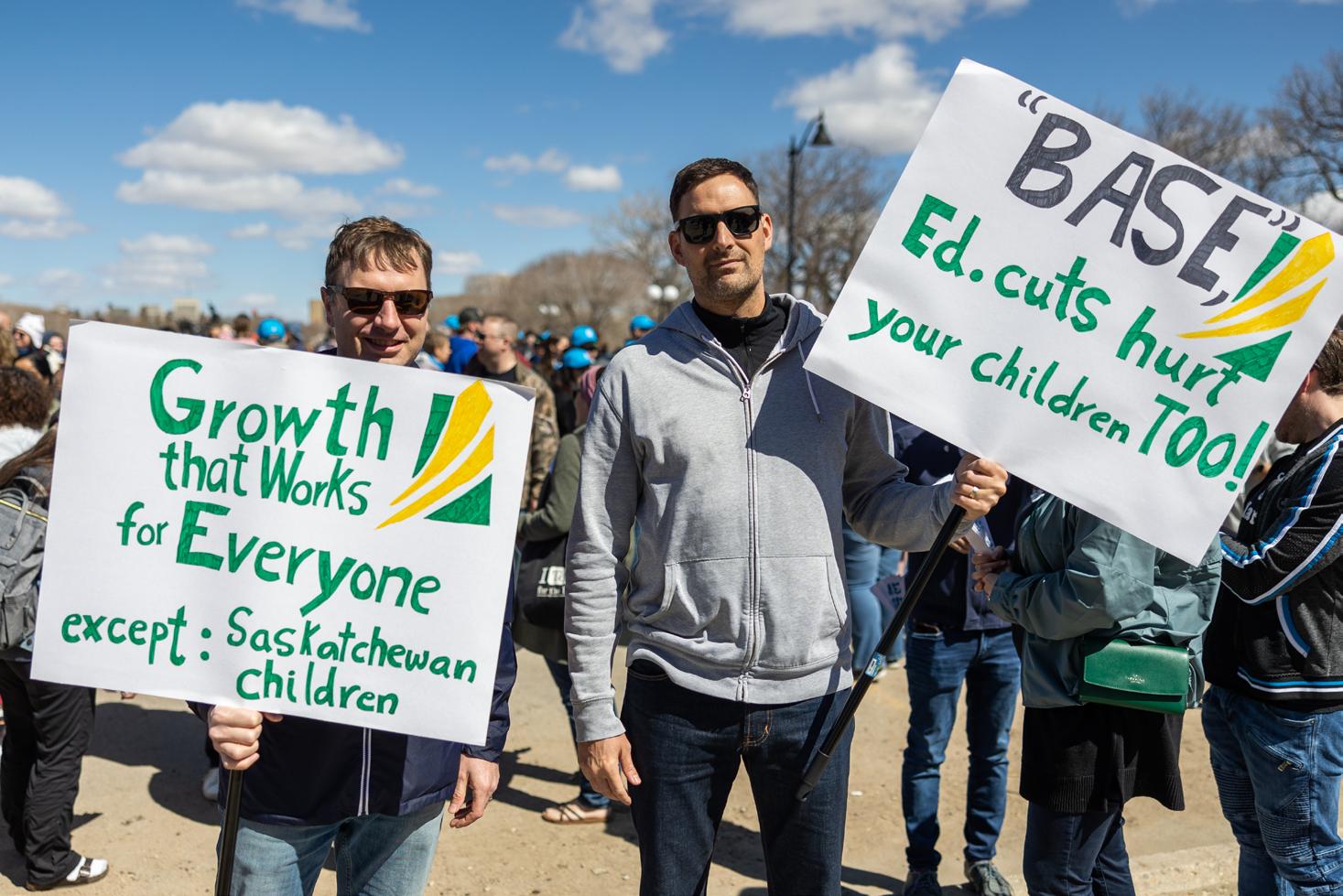
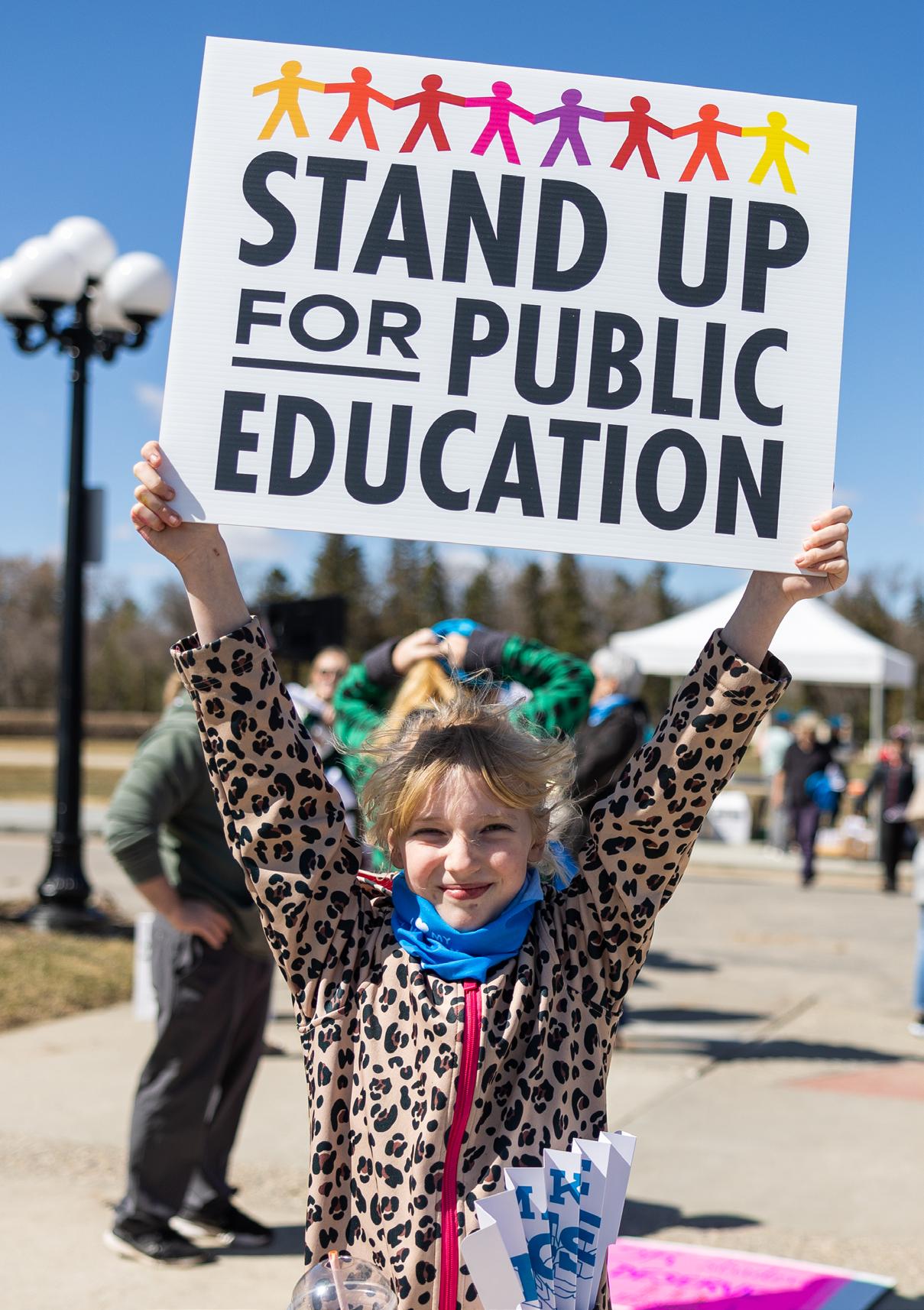

Stay up to date and take further action by signing up for Tell Them Tuesday at www.tellthemtuesday.com.
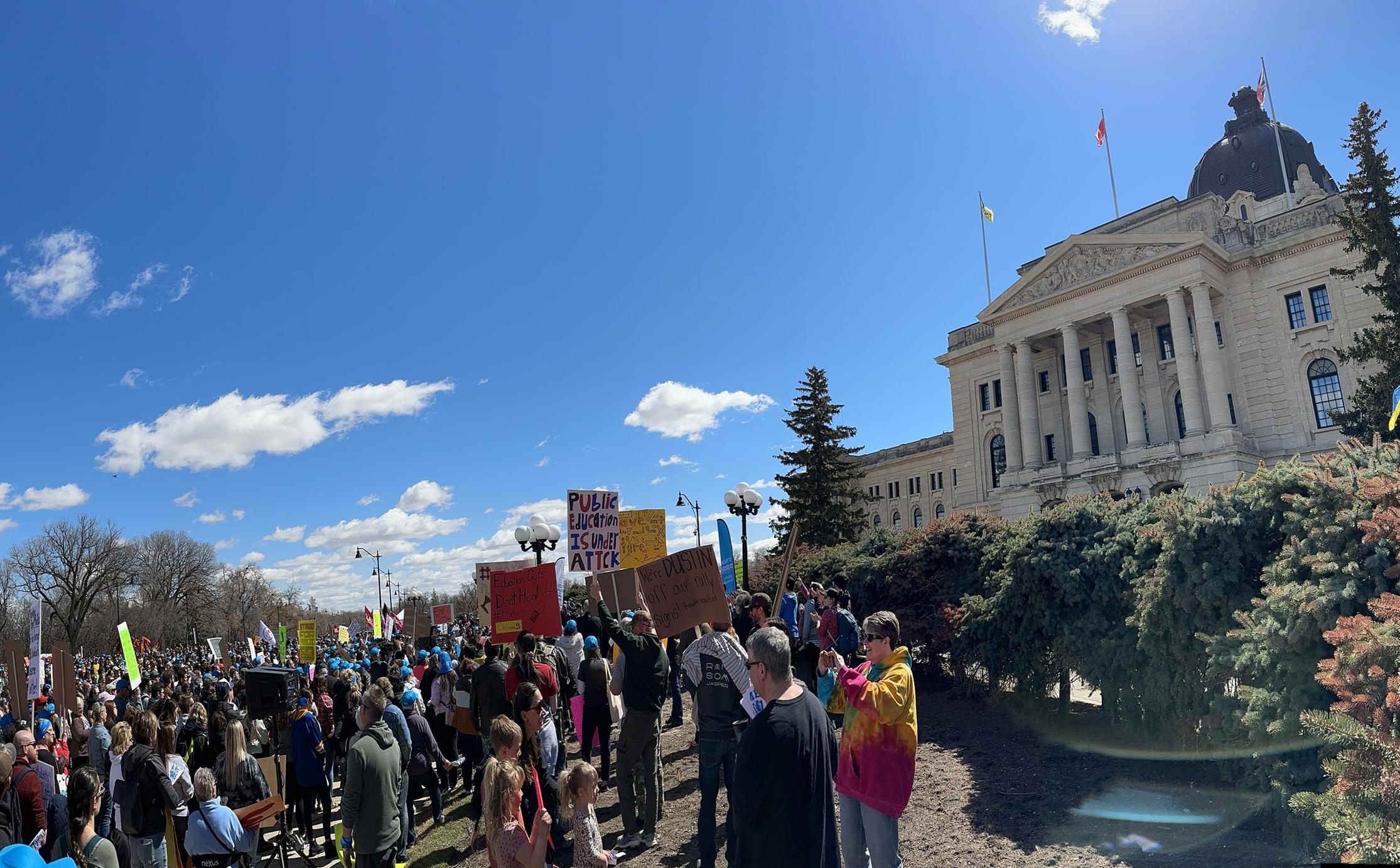
7
STF President Samantha Becotte is interviewed by media.
HILARY NELSON
Provincial Collective Bargaining Underway
BY COURTNEY FORSETH, STF COMMUNICATIONS
After a lengthy planning process and extensive member engagement, negotiations for the next Provincial Collective Bargaining Agreement are underway. On May 3, the Teachers’ Bargaining Committee made a formal request, as required under The Education Act, 1995, to the Government Trustee Bargaining Committee to open bargaining. The following day, May 4, the first meeting to open this round of negotiations was set for May 24 and 25. Additional meeting dates throughout the summer were also tentatively scheduled.
The asking package, as it is commonly known, was approved by councillors at the 90th Annual Meeting of Council, April 26 to 29 in Regina. Councillors unanimously approved the Proposals for Teachers’ Consideration, demonstrating an unprecedented show of support and collectivity. Approval of the proposals is a key milestone in the bargaining process and the culmination of a comprehensive member engagement process. More than 9,000 teachers provided input and direction on bargaining priorities through surveys, focus groups and town halls.
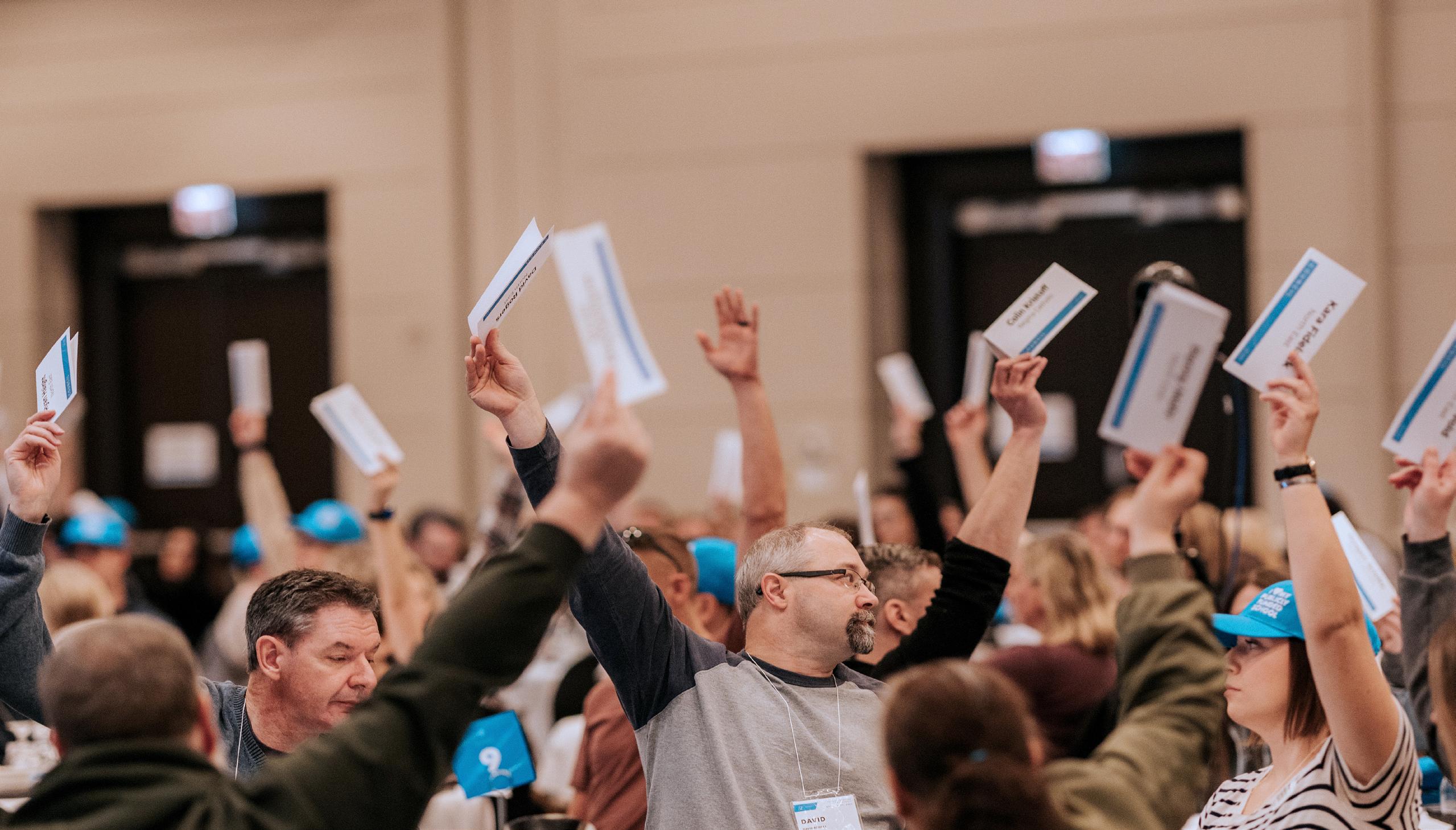

Bargaining is a fluid process. The TBC’s role is to negotiate the best possible deal for teachers on the items included in the proposals and other opportunities that may arise throughout the process. The asking package includes proposals on:
• Salaries of Teachers
• Allowances for Principals, Vice Principals and Assistant Principals
• Class Complexity
• Teacher Professional Autonomy
• Violence Free Classrooms
• Substitute Teacher Conditions of Employment
• Truth and Reconciliation
• Supplemental Employment Benefit Plan Amendment
• New Teacher Orientation
• Administration of Dental Plan and Group Life Insurance Plan
• Term of the Collective Agreement
Members’ input was critical to the development of the proposals and remains as important throughout the entire process. Members must stay up to date and involved in
WORKING FOR YOU
BRITTANY BELLAMY
8
Councillors vote on the asking package at Annual Meeting of Council.
the process to contribute to a strong collective and help ensure a successful round of bargaining. Each member is asked to:
• Share your story. Talk to family, friends and others about the reality in public schools. Remember to be mindful of privacy and ensure you don’t identify students.
• Contact your MLA. Request a meeting, call their office or send them an email. Tell them what is happening in classrooms and how years of underfunding are impacting students in your community.
• Familiarize yourself with the asking package. Highlights of the package are available on the STF website, www.stf.sk.ca, and were mailed to each member’s home. The full asking package, as approved by Council, is also available online.
• Ensure the STF has your current contact information, especially your preferred email address. Your preferred email address must be a personal address, not your work account. Bargaining updates will be emailed to members and will require sign in to MySTF.
• Stay up to date. Read the emails sent by the STF as these will contain important and timely updates. You can also follow the STF on Facebook, Twitter and Instagram.
• Attend a fall regional meeting. Check the back cover and the Events Calendar on the STF website, www.stf.sk.ca, for more details.
• Contact the STF with questions, concerns and feedback.
For the first time ever, three advisory panels have been formed to provide key member feedback throughout negotiations regarding working
conditions, compensation and benefits, and sanctions. More than 120 members applied to serve on these committees, further evidence of how highly engaged and motivated members are. A few members of the new advisory panels shared why they applied and what they hope to bring to the process:
“I teach in a small rural school that faces a lot of its own unique challenges, and so I hope to bring some of that experience and perspective to the advisory panel.”
Morag Wagner Teacher North East Teachers’ Association Working Conditions Advisory Panel
“I believe having active teachers provide current context for the bargaining team will add validity to the TBC’s actions during this round.”
Sara Stone Grades 7 and 8 gifted education teacher
Saskatoon Teachers’ Association
Compensation and Benefits Advisory Panel
“Having previous experience on Council, I understand the bargaining process and feel it will be a particularly challenging year for negotiations coming up.”
Kirstin Osback
Grades 7 through 12 teacher
Tri-West Teachers’ Association
Compensation and Benefits Advisory Panel
“I have always had an interest in the decisions that are being made for our profession and have been curious to see if my input could help shape the direction our Federation is going. I want to do my part to bring prestige to teaching again.”
Kendall Pierce Principal Saskatoon Teachers’ Association Sanctions Advisory Panel
Teachers’ Bargaining Committee
Bobbi
Taillefer
Chairperson and STF Executive Director
Samatha Becotte STF President
Nathan Bromm STF Vice President
Gwen Paul STF Executive Member
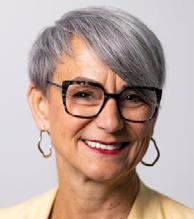
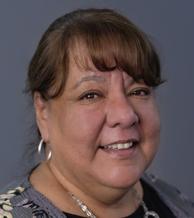
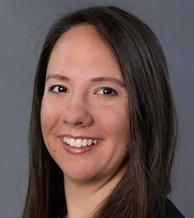
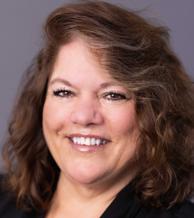
Angela Banda
STF Associate Executive Director
Neal Boutin STF Executive Member * alternate
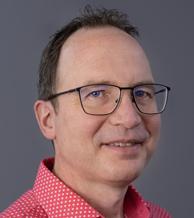
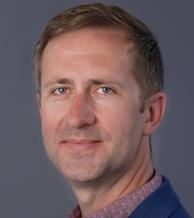
GovernmentTrustee Bargaining Committee
• Don Hoium, Saskatoon
• Sandra Baragar, Regina
• Liam Choo Foo, Swift Current
• Ray Deck, Regina
• Thomas Sierzycki, La Ronge
WORKING FOR YOU
9
Advisory Panels
WORKING CONDITIONS
• Andrea Bogard, Good Spirit Teachers’ Association
• Scott Brebber, Lloydminster Teachers’ Association
• Lloyd Bullerwell, Tri West Teachers’ Association
• Marcia Cook, Saskatoon Teachers’ Association
• Robert Dolan, Ile a la Crosse Teachers’ Association
• Stephen Groves, Prince Albert Teachers’ Association
• Trudy Klassen, Regina Public Schools Teachers’ Association
• Colin Kristoff, Regina Catholic Teachers’ Association
• Briana Leibel, Prairie Valley Teachers’ Association
• Shelly Lord, Saskatoon Teachers’ Association
• Denille Martineau, Prairie Spirit Teachers’ Association
• Shawn Morris, Prairie Valley Teachers’ Association
• Jolene Smith, Regina Public Schools Teachers’ Association
• Morag Wagner, North East Teachers’ Association
• Karielle Willner, Sun West Teachers’ Association
COMPENSATION AND BENEFITS
• Mary Battersby, Prairie Spirit Teachers’ Association
• Grayson Beaudin, Saskatoon Teachers’ Association
• Kathleen Berg, Prairie Valley Teachers’ Association
• Kimberley Conarroe, Prince Albert and Area Teachers’ Association
• Shaun Donald, Lloydminster Teachers’ Association
• Jodie Flaman, South East Cornerstone Teachers’ Association
• Nina Lonsberry, South East Cornerstone Teachers’ Association
• Milos Menhart, Regina Catholic Teachers’ Association
• Rod Orieux, Prince Albert and Area Teachers’ Association
• Kirstin Osback, Tri West Teachers’ Association
• Gisele Perrault, Prairie South Teachers’ Association
• Devon Peters, Regina Public Schools Teachers’ Association
• Sara Stone, Saskatoon Teachers’ Association
• Lisa Zacharias, Prairie Spirit Teachers’ Association
• Jamie Zaluski, Horizon Teachers’ Association
SANCTIONS
• Brad Amy, Prince Albert and Area Teachers’ Association
• Kirby Arbeau, Tri West Teachers’ Association
• Karey Bleich, North East Teachers’ Association
• Heidi Bouvier, Association locale des enseignantes et enseignants fransaskois
• Joanne Feeley, Prairie South Teachers’ Association
• Ralene Fehr Rose, Regina Public Schools Teachers’ Association
• Karen Hovind, Good Spirit Teachers’ Association
• Crystal Hrbachek, Sun West Teachers’ Association
• Vincent Mamer, Saskatoon Teachers’ Association
• Kendall Pierce, Saskatoon Teachers’ Association
• Craig Reinhardt, Prairie Spirit Teachers’ Association
• Mitchell Squires, Northern Area Teachers’ Association
• Jason Steinley, Chinook Teachers’ Association
• Jennifer Ulmer, Saskatoon Teachers’ Association
Kirby Arbeau, a teacher in Living Sky School Division, is also serving on the Sanctions Advisory Panel. For him, joining a panel is one way to contribute to the profession.
“I am looking forward to working collaboratively with my fellow teachers as part of this [advisory panel]. I have been a teacher for 20 years and I love being part of such a respected and rewarding profession. Volunteering for this role is part of how I can give back to the career that has given me so much.”
Kirby Arbeau Grades 5 and 6 teacher Tri-West Teachers’ Association Sanctions Advisory Panel
“Often the government negotiations team tries to imply that the STF doesn’t represent the teachers. That is just not true…This is a chance for me to support the work of the STF Executive and all the rest of the staff who work tirelessly on the members’ behalf.”
Karielle Willner Grades 8 through 12 teacher Sun West Teachers’ Association Working Conditions Advisory Panel
“I have seen first-hand what chronic underfunding is doing to the quality of education we are providing as well as the decline of the mental health and well being of our students and staff. I have [also] felt unheard and undervalued as a teacher in this province and I look forward to the opportunity to work towards having our voices heard during the upcoming bargaining with our provincial government.”
Jennifer Ulmer Grades 9 through 12 special education teacher Saskatoon Teachers’ Association Sanctions Advisory Panel
While these panels will provide direct advice on specific issues to the TBC, all members must continue to contribute to the process. STF staff members are ready to field all questions, concerns and feedback from members and ensure it is considered as the TBC moves through negotiations. Members can contact the STF through the chat feature at www.stf.sk.ca, by phone at 1 800 667 7762, by emailing stf@stf.sk.ca or by engaging on TeacherTalk.
WORKING FOR YOU
10
BY STAFF WRITER
This Year’s Winners of the Arbos Awards Are Advancing Education With Dedication and Passion
For more than 20 years, the Saskatchewan Teachers’ Federation has been celebrating leaders in teaching with its Arbos awards. This year’s honourees have distinguished themselves through the scope, impact and significance of their exemplary contributions to the sector.

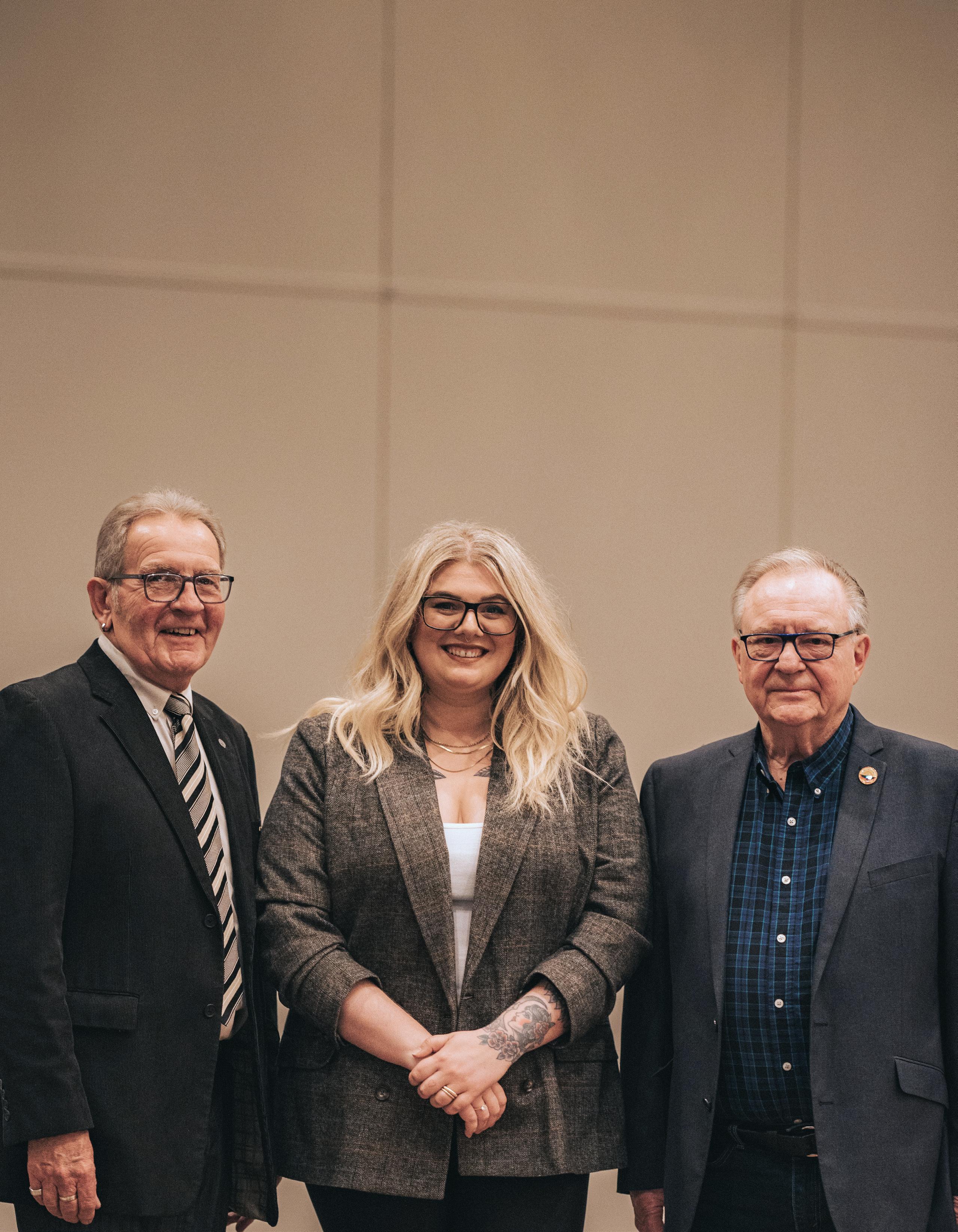
BRITTANY BELLAMY TEACHERS INSPIRE 11
DR. KRISTA KEELEY – 2023 ARBOS FOR CONTRIBUTIONS TO EDUCATION AND THE TEACHING PROFESSION
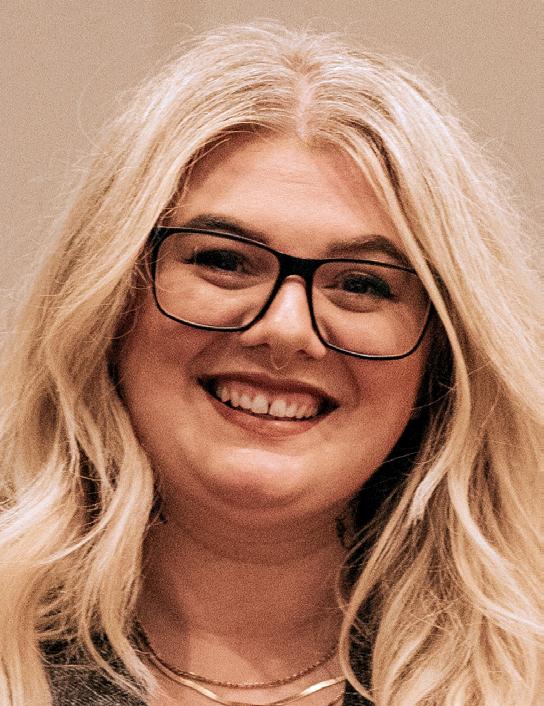
Dr. Krista Keeley is known for her unwavering passion and commitment to advancing teaching and learning practices into the 21st century. Keeley taught in public schools in Saskatchewan for 12 years. Today she is a professional learning facilitator with the STF and has lectured at Brandon University’s Faculty of Education.
Admittedly a “boat rocker,” Keeley empowers students to explore important themes such as privilege, racism, colonization and intergenerational trauma in a safe and brave learning space. She created a way to empower young authors with Here We Inspire, Creative Publishing, which is a publishing house that gives students authentic writing opportunities and creates high quality resources and literature — it’s all by kids, for kids. Keeley has also authored several books of her own including the children’s book And Away They Went. Today Keeley is working on a
book about teaching in the 21st century that will explore themes of organizational change and the personal and ethical challenges that happen with change.
A lifelong learner, Keeley offers these words of wisdom to new and aspiring teachers:
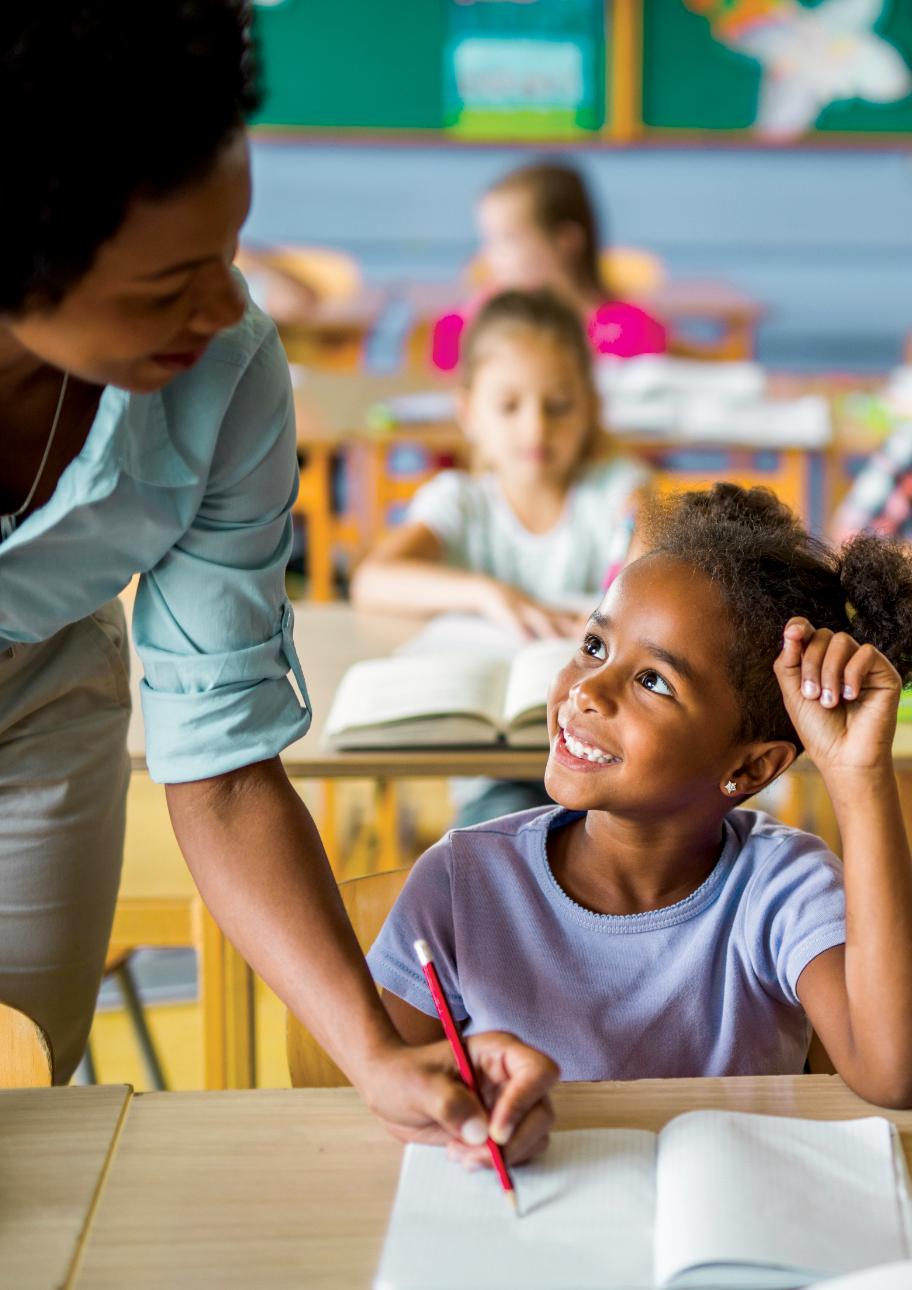
“As a teacher, you have the power to be someone’s reason to get out of bed in the morning or to be the reason they can’t – and everything in between. Plan your relationships, lessons and instruction with intention. And embrace truth and reconciliation and Indigenization — it is not an option. The health of your students, school and community depends on it.”
OREST MURAWSKY – 2023 ARBOS FOR DISTINGUISHED SUPPORT OF EDUCATION AND THE TEACHING PROFESSION

For over four decades, Orest Murawsky has made a profound impact on the education landscape in Saskatchewan and
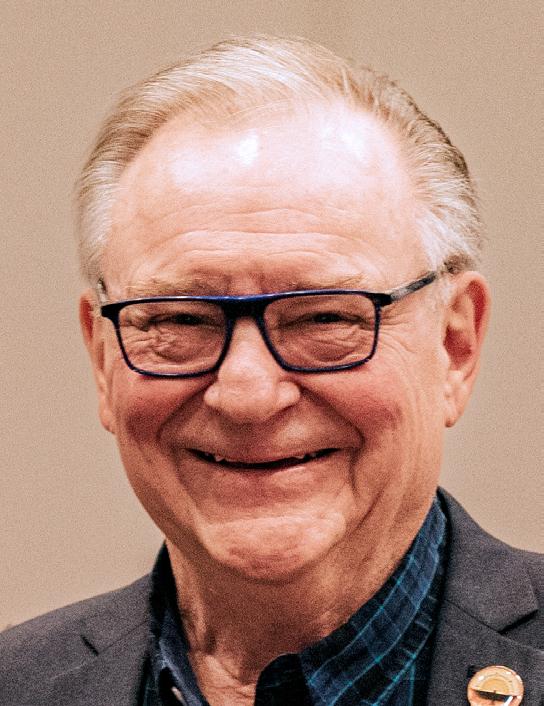
TEACHERS INSPIRE
SODOWE. Outstandinginstructors,research-based courses,andanunparalleledlevelofpersonal supportcombinetomakethedifferenceyou expectfromoneofCanada's leadinguniversities. 12
coursesforteachers.ca/sk YOUTEACHTOMAKEADIFFERENCE.
across the country, touching the lives of thousands of people.
Among Murawsky’s greatest contributions is his work with the Indian Teacher Education Program, a four year degree program designed for First Nations students interested in obtaining a bachelor of education degree. Offered by the University of Saskatchewan, the program celebrated its 50th anniversary in 2022.
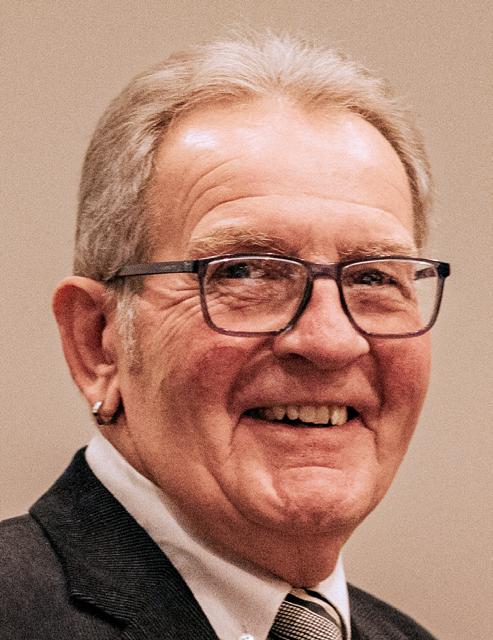
Originally employed as a surveyor, Murawsky took inspiration from his wife and brother who were both teachers, earning bachelor’s and master’s degrees in education. For many years, Murawsky travelled across the province, facilitating communication between First Nations leaders, bands, tribal councils and schools, and the University of Saskatchewan. Often working against the status quo, Murawsky believed that Indigenous Peoples’ knowledge, insight and beliefs were integral to the program and its success.
One of Murawsky’s career highlights was when, in 1977, a partnership with the University of Saskatchewan’s Continuing and Distance Education Centre and the Colleges of Education and Arts and Sciences made it possible to offer ITEP off campus so that learners could earn a degree in education while remaining in their community.
“One of the main accomplishments I have achieved as the director of ITEP and am most proud of is seeing the wide diversity of achievements of our graduates over the years. They have been instrumental in educational, institutional and political change. ITEP graduates have become chiefs, counsellors, chancellor of the University of Saskatchewan, directors, principals, CEOs, presidents and, of course, the most important role as teachers, parents and community leaders. Over the past 50 years, ITEP has been recognized as a major educational force with the graduates being change agents in both the provincial and First Nations schools.”
WAYNE CLEMENTS – 2023 ARBOS FOR CONTRIBUTIONS TO THE PROFESSIONAL ORGANIZATION
Wayne Clements has dedicated his life to educating and advocating for inclusivity in the education community. A self described rebel in high school, Clements
vowed never to look at another textbook after graduating. Despite his misgivings, Clements went on to become a teacher and vice principal in the Regina and Saskatoon public school divisions, remembering the words of a Grade 4 teacher who told him, “You’d make a great teacher.”
Over the years, Clements’ experiences with prejudice, stigma and hate served as defining moments and strengthened his resolve to advocate for the rights, dignity, inclusion and safety of students and teachers. An active volunteer, he served on the board of governors for the University of Regina and the Avenue Community Centre (OutSaskatoon) and helped found Camp Fyrefly, a leadership retreat for queer and trans youth ages 14 to 24 in Saskatoon. In honour of his remarkable contribution to the field of education, Clements received the Queen’s Golden Jubilee Medal in 2002 and the Saskatchewan Centennial Medal in 2005.
Clements officially retired in 2010. However, he continues to volunteer his time teaching English in a one room rural school in Costa Rica.
Clements offers this advice to new teachers:
“No matter what your personal beliefs, your professional ambitions or comfort level in dealing with the myriad of issues you will face, you are a teacher. Always try to create a caring, understanding and inspirational classroom. The difference you make in the life of that LGBTQ+ student, that First Nations student, or more recently that ‘new’ Canadian student, may not always be immediately seen. But keep in mind that the safe place you provide may someday, 20 or 30 years later, result in an adult approaching you and saying, ‘Hey Mr. C., I just want to say thank you!’”
Nominated by an individual or group involved in the educational community, each Arbos recipient receives an honorary life membership in the STF and is presented with an artistic replica of the Arbos symbol at the Annual Meeting of Council banquet.
For more information about the Arbos awards, past recipients and the nomination process, visit the Federation website, www.stf.sk.ca
TEACHERS INSPIRE
13
& CLASS SIZE Complexity Students Pay the Price
BY COURTNEY FORSETH, STF COMMUNICATIONS
While teachers undoubtedly feel the impact of class size and complexity, it is students who are bearing the brunt of government’s funding cuts. The lack of supports and resources hurts students and the future of our province.
According to several teachers interviewed, one of the most evident examples is the reading deficiencies that are particularly acute among middle years students. It is a common theme for those in Grade 6, for example, to be reading at a Grade 3 level at best. This is backed up by data from the provincial government: in 2021 22, 31 percent of Grade 3 students were reading below grade level.

For Daryl*, a teacher in northern Saskatchewan, this is a familiar situation. He’s doing everything he can to support his students but knows he can only do so much without the right resources.
“I feel really bad, and it’s something that is going to affect these kids down the road. It is so frustrating.”
Another teacher, Suzanne*, has a similar experience. She teaches a Grade 4/5 split and says in that one class, “we have several who I would call non readers.”
Students are being shortchanged far beyond reading and literacy. The number of psychologists declined by 13.5 percent from 2013 to 2021. This amounts to a significantly larger number of students trying to access even fewer psychologists. For every one psychologist, there are 3,452 students.
Class size and complexity challenges exist in classrooms in every corner of the province. In a series of articles in the Saskatchewan Teachers’ Federation Bulletin, we will share stories from Saskatchewan teachers as we explore how significant the challenges are and their impact on students’ educational experiences and the teaching profession.
Marshall* has been a teacher for nine years. A distraught colleague confided in him about how the lack of mental health supports was impacting a student. The student’s parent had recently passed away. Because of cuts, this student cannot get mental health support to deal with this traumatic event. In an effort to give the student some support, it was suggested they journal instead.
“[My colleague] questions if this is enough and now feels a personal obligation to learn more about mental health on their own personal time. Then, with that learning, the teacher would implement, check in, and hopefully guide this child in a positive direction, while not forgetting the other 30 kids and their needs in the classroom,” shares Marshall.
Another teacher shares the difficult decision she has made as a parent. Janessa’s* child has a mild intellectual disability and requires additional support. But that support isn’t available.
SERIES
For every one psychologist, there are 3,452 students.
14
“There is one teacher for 26 students and there are other children with learning or behavioural needs. We have made a hard decision to homeschool him in the mornings.”
It isn’t just teachers and those who work in schools who are seeing what these cuts actually mean. Parents are seeing it too.
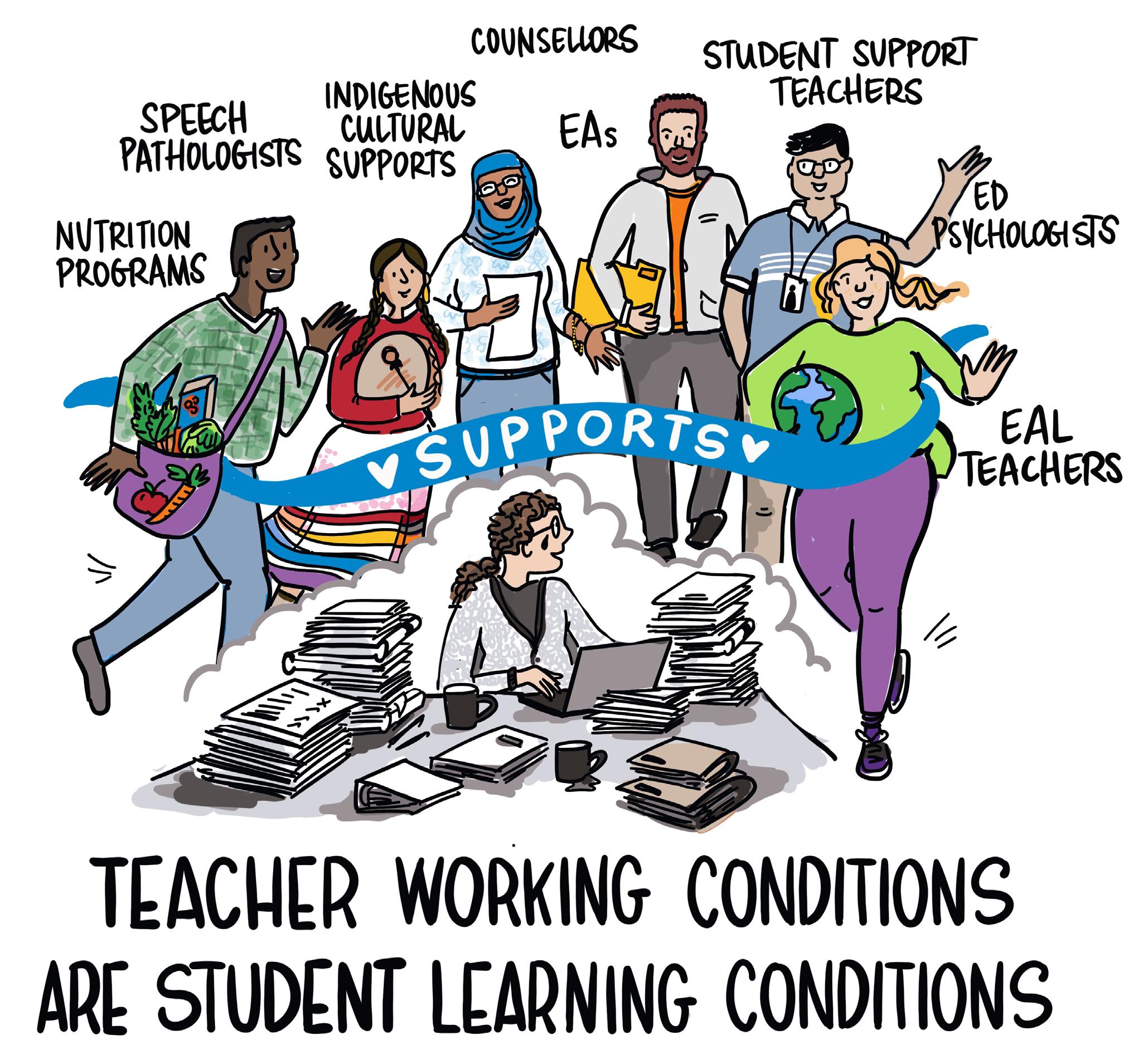
A family from a rural school of 95 asked for their children to be assessed by a speech language pathologist. The assessment was complete, and it was deemed both children required speech therapy. “I asked what could be offered to them and the SLP (speech language pathologist) referred me to private services as she would only be able to meet with them once per year,” says the children’s mother, Anna*
After being on a waitlist for a year, Anna’s children have finally started working with the SLP. “It costs $140 per hour per child. I only have coverage for $400 for each child and they require more support than this. The overage will come directly out of our family finances.”
Anna also shares that one of her children was reading below grade level. Because of her awareness of the limitations in schools due to cuts, Anna sought out private tutoring. After spending more than $1,200, her child is now reading at grade level. She expresses frustration at the lack of services available in school.
“It is ridiculous we have to endure financial constraints due to the lack of funding for education. While we are fortunate to have the financial means to make this work, we should not have to do this.”
15
All the parents who shared their experiences are quick to recognize that not all families are as fortunate.
Cathy*, an elementary teacher adds to the scenario playing out in communities across Saskatchewan.
“We have parents who are doing all they can and are aware, but in some cases there are other factors. Those kids are at a distinct disadvantage. These delicate early years may be what gives them a future. Something needs to be done during these most important years of learning for these students.”
It isn’t just the financial cost that makes finding private help unattainable for families. A Saskatoon parent named Jake* is taking his first grader to counselling each week because the school counsellor’s case load is too large.
“I am incredibly grateful I have benefits to cover some of the cost and a flexible job where I can make this work. So many families don’t have that. Still, it isn’t ideal. A 45-minute appointment each week means my child misses close to two hours of school because we have to travel. This is also detrimental, but seems like the only option.”
A veteran teacher of 25 years, Mona*, shares the composition of her Grade 3 class. It perfectly depicts how class size alone isn’t the problem. She has 22 students in her class, which sounds like an ideal number. But the reality of student needs makes it an impossible situation.
“I started the year with over one third of my class coming in as pre-readers. This means they had limited or no sight word knowledge, limited phonemic skills and were struggling to recognize and give the sounds for the basic alphabet. Another third of my class was reading at a Grade 1 level. Only five of my students were ready or close to ready to read at grade level. The math screener also showed that no one was fully ready for Grade 3 and most students were nowhere near ready. Only five students had at least 50 percent of their Grade 2 math skills mastered, and only five had at least 75 percent of their Grade 1 math skills. Twenty-two students does not seem like a high number, but given the needs, it is.”
Mona says the students have made great progress this year, but in a starved system it is impossible for the students to get all that they need.
Another teacher’s experience demonstrates how class composition and size are related. Rob* started the year with 18 students in his Grade 1 class. More students have been added, and there are now 26 students in the class. Thanks to robust reading data at this school, Rob has identified a clear trend.
“With every new student being added to the classroom, the reading data reflected this. The reading improvement margin shrunk with every new student [added to the class].”
As one rural teacher made it quite clear that all too often parents – and the general public – are unaware of those students who are falling through the cracks. “I wouldn’t know if I didn’t see it every day. It’s definitely not fair for everyone at this stage. It’s very difficult to address those gaps.”
It isn’t just the students who require additional support whose needs aren’t being met. Each student in the classroom is impacted on some level, as teachers are forced to approach their days using a triage model. Recently, about one third of Leah’s* class was away. It proved a stark reminder of what education should look like in a properly funded and supported system. “I had time to give every single student in my class one on one time while planning essays. We refined thesis statements, wrote topic sentences; I helped them find evidence from the play to support their arguments. Every single student got my undivided attention and the individual help they needed. I felt energized after that class. This is why I teach.”
Leah contrasts this particular day with what is unfortunately the norm. “I rarely get to every kid who needs me in a single period; it’s a frequent refrain of, ‘I’ll start with you next class’ or ‘we’ll look at that tomorrow’ because most days my whole class is here and there are so many of them and only one of me.”
She also underscores that her experience is not uncommon.
“If you have children in the publicly funded school system, this is likely the reality in their classrooms as well. As parents and educators, we need to demand more of this government. Because we should be able to do this every day and not just when the flu wipes out our classes.”
These are just a few stories of the hundreds we have heard from parents and teachers who are witnessing first hand what starving public education looks like. Dropping from first in per student funding to eighth in per student funding has a real and significant impact on students that is not only being felt today, but will also significantly impact students’ future success and opportunities as adult citizens.
If you agree that students deserve better, watch and share these videos on the STF’s YouTube Channel:
16
* Pseudonyms have been used to protect the privacy of teachers and students, but the stories are all real and recent experiences shared by current STF members and parents.
Class Complexity
Saskatchewan Per Student Funding: First to Eighth in Canada
Post-GraduateCertificatein SpecialEducation
OurPost-GraduateCertificateinSpecial EducationisrecognizedbytheSaskatchewan ProfessionalTeachersRegulatoryBoard(SPTRB) andwillequipSaskatchewaneducatorsto meettheprovincialneeds-basedapproachof support.Teacherslearninterventionand supportstrategiesandextendtheirknowledge oftheinstructional,programming,and assessmentneedsofstudentsrequiringspecial education.Thisprogramhelpseducators betterunderstandexceptionalstudents' educationalneedsandthepracticalwaysin whichpositiveandinclusivelearning experiencescanbeprovided.
ThePost-GraduateCertificatein SpecialEducationismadeupof5 courses: Required
● SpecialEducationPart1
● SpecialEducationPart2
● SpecialEducationSpecialist
Electives(Pick2)
● Teaching Students With Behavioural Needs
● Teaching Students With Communication Needs (Autism Spectrum Disorders)

● Teaching Students With Communication Needs (Learning Disability)
Inadditiontobeingofferedfullyonline,our coursesareflexibleandwrittenbyhighly experiencedsubjectmatterexpertsfrom Saskatchewan.

17
Tolearnmoreaboutthisprogram,visitusat COURSESFORTEACHERS.CA/SK
Moving From Good to Great Leadership Through Self-Awareness
Strategies to help leaders recognize and overcome blind spots

 BY STAFF WRITER
BY STAFF WRITER
Some people would say it is one of the hardest jobs in the world – being a school principal. And in your first year, it can feel more than a little overwhelming. Here are some tips for making it through that first year while making a difference.
Rapid change and mounting pressures in the education system have become day to day realities for school principals and educators everywhere. Today’s principal wears many hats – as an inspirational leader, role model, change maker, communicator, relationship builder and coach. They grapple with operational issues and large scale change initiatives, moving swiftly among multiple roles throughout their day. To be truly great leaders, they must also take time to reflect on their leadership style, detecting any blind spots that could hinder their ability to be effective in their role.
A blind spot is an area in your range of vision that you cannot see properly but which you should really be able to see. When it comes to leadership, the most
common blind spots are lack of self awareness, insight or perspective. Blindspots can be shaped by underlying biases, assumptions, past experiences or lack of feedback, and based on gender, race, age or social class. For example, a leader who has an unconscious bias against women may overlook female employees for promotions, even if they are highly qualified. A leader may assume that a team member who is quiet in meetings is not engaged or lacks ideas when they may be introverted or process information differently.
Bias can also take the form of microaggressions – those brief, everyday slights, insults, indignities or denigrating messages made by well intentioned people who are typically unaware of the hidden and hurtful messages they
18 PRINCIPALS’ NOTES
are communicating. Leaders may unknowingly racialize an individual by asking them where they are really from or show disrespect by failing to use the preferred gender pronoun of a co worker after repeated reminders.
Shaw believes the one characteristic of a great leader is self awareness, and that good leaders become great by skilfully managing their own vulnerabilities. He offers a Leadership Blindspot Survey: Self Assessment for leaders who are committed to understanding and overcoming their own blind spots.
Other steps you could take include:

• Ask a trusted colleague to give you feedback and help identify your blindspots.
• Identify strategies to help guide you.
• Create and commit to a plan.
According to Robert Bruce Shaw in his book Leadership Blindspots: How Successful Leaders Identify and Overcome the Weaknesses That Matter, blind spot risks are when leaders fail to respond to weaknesses or threats either because of the complexity of an organization, overconfidence in their abilities or being surrounded by deferential subordinates. Register

• Seek out further education to support your journey. No matter where you are in your leadership journey, practising self awareness can lead to better decision making, better relationships and the ability to cultivate an environment of inclusion and acceptance.
July 6 & 7
We’re inviting alumni, communities, and organizations to be a part of the 50th celebration of the Indian Teacher Education Program.
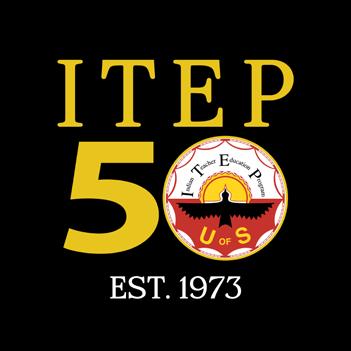

Upcoming Events
• Golf Tournament, Dakota Dunes Resort (July 6)
• Culture, Language, Traditional Teaching and Learning Gathering & Banquet (July 7)
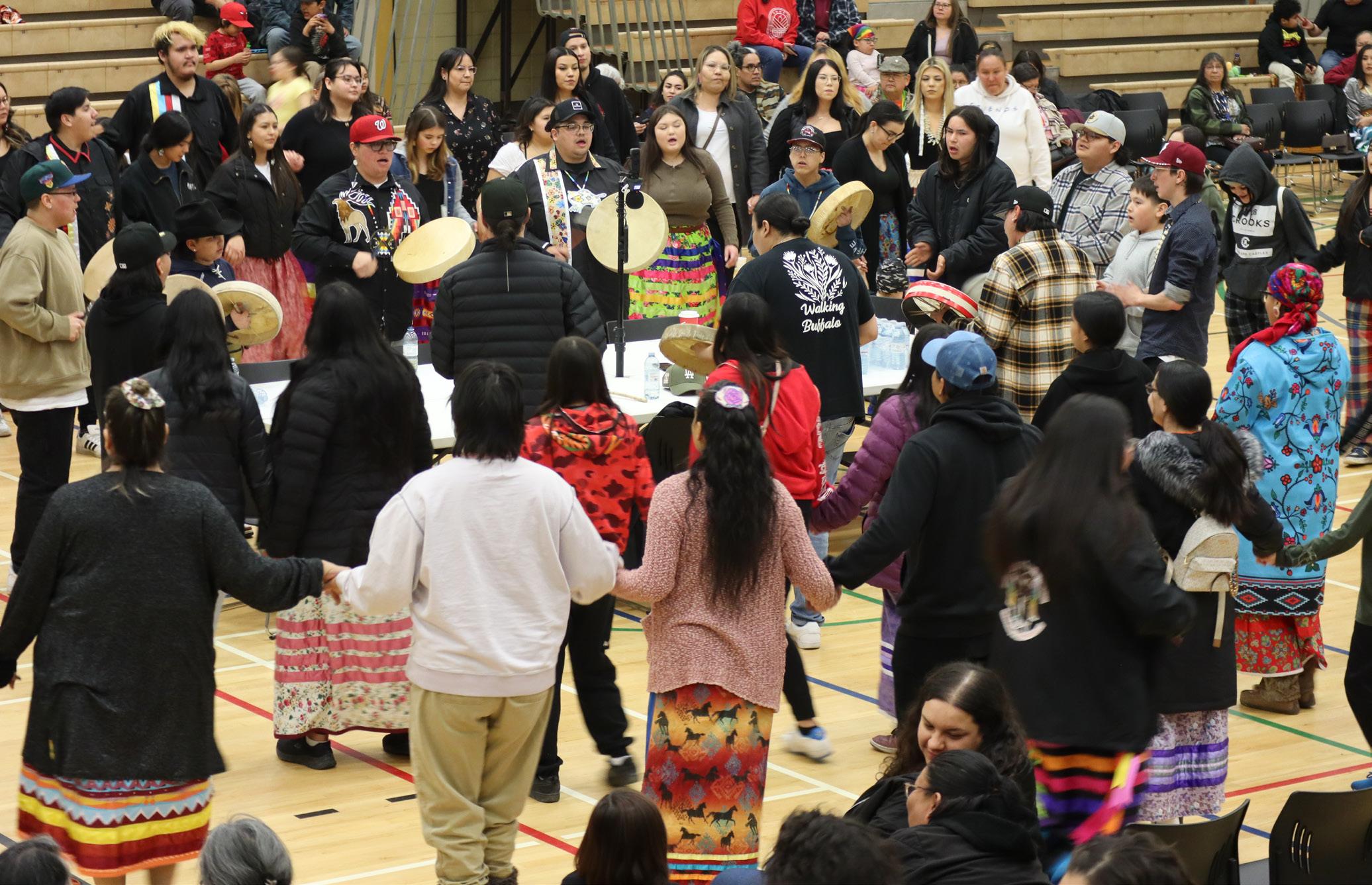
19 PRINCIPALS’ NOTES
A blind spot is an area in your range of vision that you cannot see properly but which you should really be able to see.
for the
more information, please contact
events at education.usask.ca/itep For
itep50years@usask.ca
UPCOMING EVENTS
ACCREDITATION SEMINARS
JULY –AUGUST
STF Professional Learning is pleased to offer accreditation seminars. Accreditation provides an opportunity for members to challenge, extend, enhance and renew their professional experience with an emphasis on assessment and evaluation.
SASKATOON
Initial: July 10 13
Renewal: July 10 11
Second Subject * : July 10 13
REGINA
Initial: August 14 17
Renewal: August 14 15
Second Subject * : August 14 17
* For second subjects (both Regina and Saskatoon), please register for Days 1 and 2 if your most recent renewal was before 2019. If your most recent renewal seminar was after the summer of 2019, you need to register for Days 3 and 4.
Planning for fall AGMs and PD days?
Saskatchewan Teachers’ Federation Professional Learning can help! STFPL facilitates sessions at teachers’ institutes, conventions and professional growth network events and can also create and deliver custom learning for staff.

Contact the STF for more information at stf@stf.sk.ca or 1 306 373 1660.
JUNE PRIDE MONTH
Pride Month recognizes the efforts and progress for civil rights and the continued work towards equality and justice. Pride Month is often celebrated with parades and festivals. Pride Month originated from the Stonewall Riots, which were a series of riots that took place in June 1969 at the Stonewall Inn, a gay bar in Lower Manhattan.
NATIONAL INDIGENOUS HISTORY MONTH
In 2009, June was declared National Indigenous History Month after a motion was passed unanimously in the House of Commons. It provides an opportunity for Canadians to reflect on our shared history and continue on our individual and collective paths to reconciliation. For non Indigenous Canadians, it is an opportunity to learn more about First Nations, Inuit and Métis cultures, customs and traditions. For many Indigenous people, the month is an opportunity to celebrate their histories and showcase their cultures.
Summer solstice on June 21 also marks National Indigenous Peoples Day.
PROVINCIAL COLLECTIVE BARGAINING 2023
Ensure you are informed on the progress of provincial collective bargaining by attending a regional meeting in September 2023. Check the back cover for dates and locations.
FOR MORE INFORMATION
For additional event listings and registration information, visit the Events Calendar at www.stf.sk.ca.
As part of our commitment to Truth and Reconciliation, and promoting diversity and inclusion, we are pleased to highlight a few upcoming celebrations.
20
CONGRATULATIONS CAROL SARICH, NEW CAP PRESIDENT
Carol Sarich, a Saskatoon principal and president of the Saskatchewan School Based Leaders, is the new president of the Canadian Association of Principals. Chosen for the role by her colleagues at the 2022 CAP Conference, Sarich’s term as president officially began at this year’s conference.
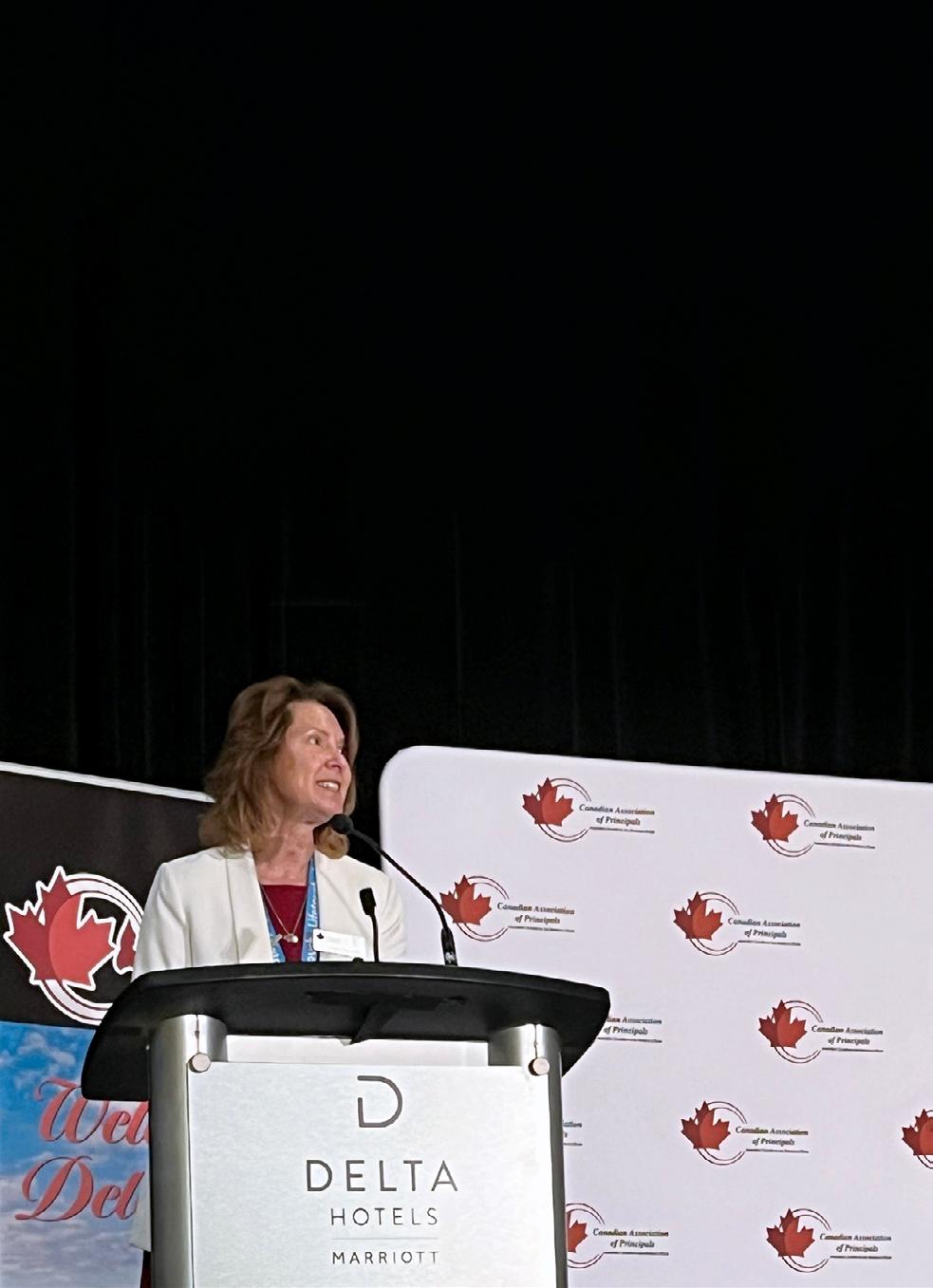
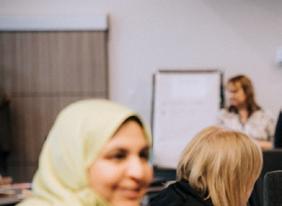
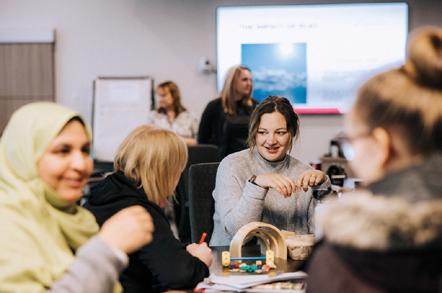
The McDowell Foundation has launched its Spring Fundraising Campaign! Read all about the work of teacher-researchers studying student and teacher well-being in the (post) COVID-19 public education system in Saskatchewan on our website . Donate today! For more information on all our programming and events, or how you can support the Foundation, visit www.mcdowellfoundation.ca 100 stf-001207 / 20230529 stf-001221 / 20230529 2023-2024 PROFESSIONAL GROWTH OPPORTUNITIES MAY 2023 Keep an eye out for the 2023-24 Professional Growth Opportunities catalogue. It features upcoming events and professional development for members and was mailed in the monthly SSL mailing in May.
21
More Than Words:
Lawson Heights School on a Journey of Indigenous Learning
 BY STAFF WRITER
BY STAFF WRITER
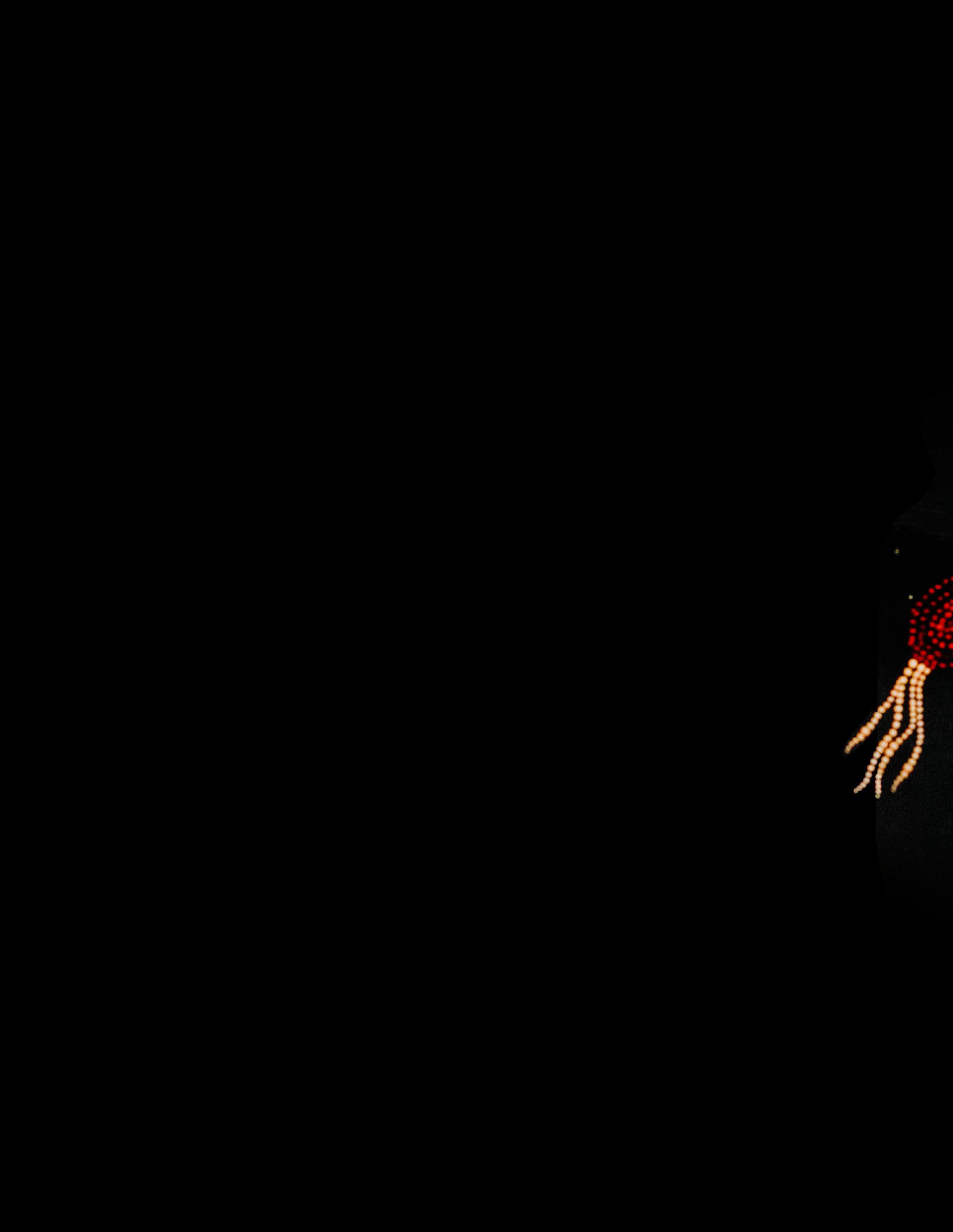
Reciprocity, Indigenous ways of knowing, making space and leadership – these are more than just words at Lawson Heights School in Saskatoon, situated on Treaty 6 territory and the traditional homeland of the Métis. Over the past year, the school has been on a journey to create nature based learning experiences for students, staff and teachers that are rich with Indigenous ways of knowing and land based teachings.
Principal Jennifer Brokofsky, vice principal Courtney McLeod, teacher Kennedy Halcro and educational assistant Brioney Montgrand have been helping to guide the way.
“These women are amazing. Their willingness to share who they are, what they know and step into leadership roles in our school has been a gift,” Brokofsky says.
Brokofsky says the year began by the river, where Indigenous staff led a smudge and shared the teaching of
reciprocity – with Mother Earth and all the creatures who live here.
As a non Indigenous person, Brokofsky has spent a lifetime learning from her Indigenous colleagues and friends.
“Their voices and perspective have opened me up to new ways of knowing, being and doing, challenging my bias and western perspective daily and allowing me to see the world in a different way,” she says. “With every Indigenous person I have had the privilege of working with, I have the conversation about my desire to create a space where they can be themselves and lead in ways they are comfortable with. I also ask them to call me out on anything I say or do that makes it hard for them to do that.”
“From students creating bird feeders to have in our park over the winter so the winged ones would have access to food, to thanking the trees before we pick berries and delivering Valentines in our community, reciprocity has been a part of our students’ learning,” she says.
Early in the school year, Halcro says the group set a goal to create something special for Indigenous Storytelling Month in February. With support from the School Community Council, they were able to invite Elders, purchase bannock for a Book and Bannock morning and hire
22
RECONCILIATION IN ACTION
Students practise reconciliation in action and learn a rich way of knowing the world.
“These women are amazing. Their willingness to share who they are, what they know and step into leadership roles in our school has been a gift.”

23
BRITTANY BELLAMY
substitute teachers so that Indigenous teachers from other schools could participate.
“I have learned that it is not hard to start something in your school or community. Ask for help from your colleagues, create a team, set a goal and take action,” Halcro says.
Halcro, who earned her degree through the Saskatchewan Urban Native Teacher Education Program at the University of Saskatchewan, says the experiences and knowledge she gained from her studies give her confidence to support her peers’ and students’ learning in Métis and First Nations people’s history and culture. She believes it is important to show initiative when it comes to Indigenous learning. “I am a proud Métis educator and if I don’t create a space for Métis students to feel connected to their culture or community, then who will?” she asks.
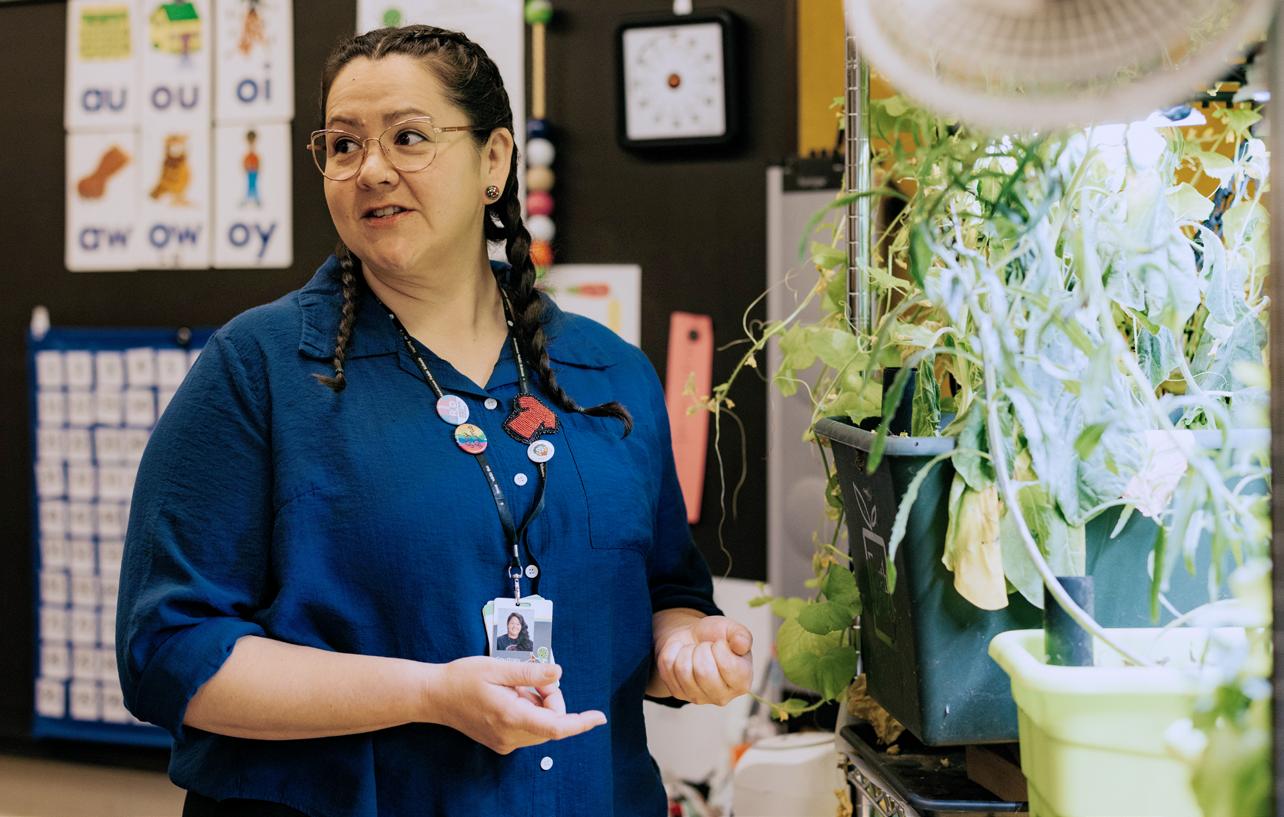
Working alongside her Lawson Heights teammates, Brioney Montgrand offered her own unique perspective about Indigenous learning and equity.

“When we look at an individual, we recognize we’re made up of four components – physical, mental, emotional and spiritual,” Montgrand says. “When we nurture each component, then we can begin to live in that equilibrium and be in balance. Nurturing can be anything from providing equitable nutrition for families in need, to mentorship for families inside and outside of our school or other equity opportunities.”
Brokofsky says she has been heartened by responses from students and the community so far.
“I regularly hear our Indigenous students sharing their own teachings, language and perspective in the classrooms, halls and on the land. I hope this is a sign that they see themselves more in learning,” she says. “It is an important part of reconciliation and, as such, something we are all called to do. It provides a richer way of knowing the world and understanding our place in it.”
DID YOU KNOW?
The STF has resources on Education
Through Indigenous Worldviews available for teachers.
Consider the context of the record and whether there may be a need to rely on it in a future investigation, conflict or accommodation.
RECONCILIATION IN ACTION
From left to right: Kennedy Halcro, Jennifer Brokofsky, Courtney McLeod, Brioney Montgrand
24
BRITTANY BELLAMY
Now’s the Time to Start Voluntary Contributions to the STRP
BY ROD DRABBLE, STF COMMUNICATIONS
As a member of the Saskatchewan Teachers’ Retirement Plan, your retirement preparation is already off to a good start.
When it comes to building personal savings that will help fund a secure retirement, every individual’s needs are different. That’s why the STF offers members the opportunity to strengthen their personal savings through voluntary contributions to the STRP.
STF’s Senior Managing Director, Corporate Fund Services Troy Milnthorp says the first question anyone planning for retirement asks is how much money do I need to save?
“The answer is different for everyone, but let’s assume you need around 70 percent of your pre retirement income to live comfortably in retirement,” Milnthorp says. “The STRP and Canada Pension Plan are only designed to replace between 50 and 60 percent combined, depending on your salary levels and retirement date. That leaves a gap that needs to be filled by your personal savings.”
The best advice when saving for your future is to start early, but it’s never too late to start. Whether you invest sooner or later, compound interest will have a powerful effect on your savings and the future retirement income you will enjoy.
The opportunity to make voluntary contributions is designed to meet the unique needs of teachers, and building a financial future through the STRP provides members with advantages over other investment options.
“Your voluntary contributions are invested in the same manner as the STRP assets, meaning that you benefit from our team of investment professionals working every day to invest your money for you,” Milnthorp says. “You gain access to lower fees, and investments that you likely would not be able to access on your own, providing you with greater diversification and more risk management.”

Voluntary contributions to the STRP are tax deductible, monthly deductions come directly off your paycheque and contributions can be used to buy back a leave.
With more than $6 billion invested through the STRP, the investment fees paid by the Plan are extremely low. Those savings are passed on to members, leaving them with more money in their pocket for retirement. Since 1991, the STRP fund has earned an average annual rate of return in excess of eight percent.
Information about making voluntary contributions to the STRP is available on the STF website, www.stf.sk.ca
FOR YOU AND YOUR FAMILY
Your voluntary contributions are invested in the same manner as the STRP assets, meaning that you benefit from our team of investment professionals working every day to invest your money for you.
25
First-Ever Leadership Symposium Draws Sold-Out Crowd
BY STAFF WRITER
In April, 150 leaders and aspiring leaders converged at the Delta Hotels by Marriott Bessborough in downtown Saskatoon for the Saskatchewan Teachers’ Federation’s first Leadership Symposium. The first event to be held as part of the STF’s Leadership initiative, it aimed to inspire and support leaders in the field of education. The event included a networking opportunity the evening before the main event. The full day symposium offered 12 sessions focused on reconciliation, creating positive school cultures, equity and inclusion, and addressing microaggressions. These sessions were facilitated by STF senior administrative staff, STF Professional Learning and McDowell Foundation researchers. Psychologist Coralee Pringle Nelson also facilitated a session called Addressing Burnout in School Leaders Using a Well Being and Post Traumatic Growth Lens.
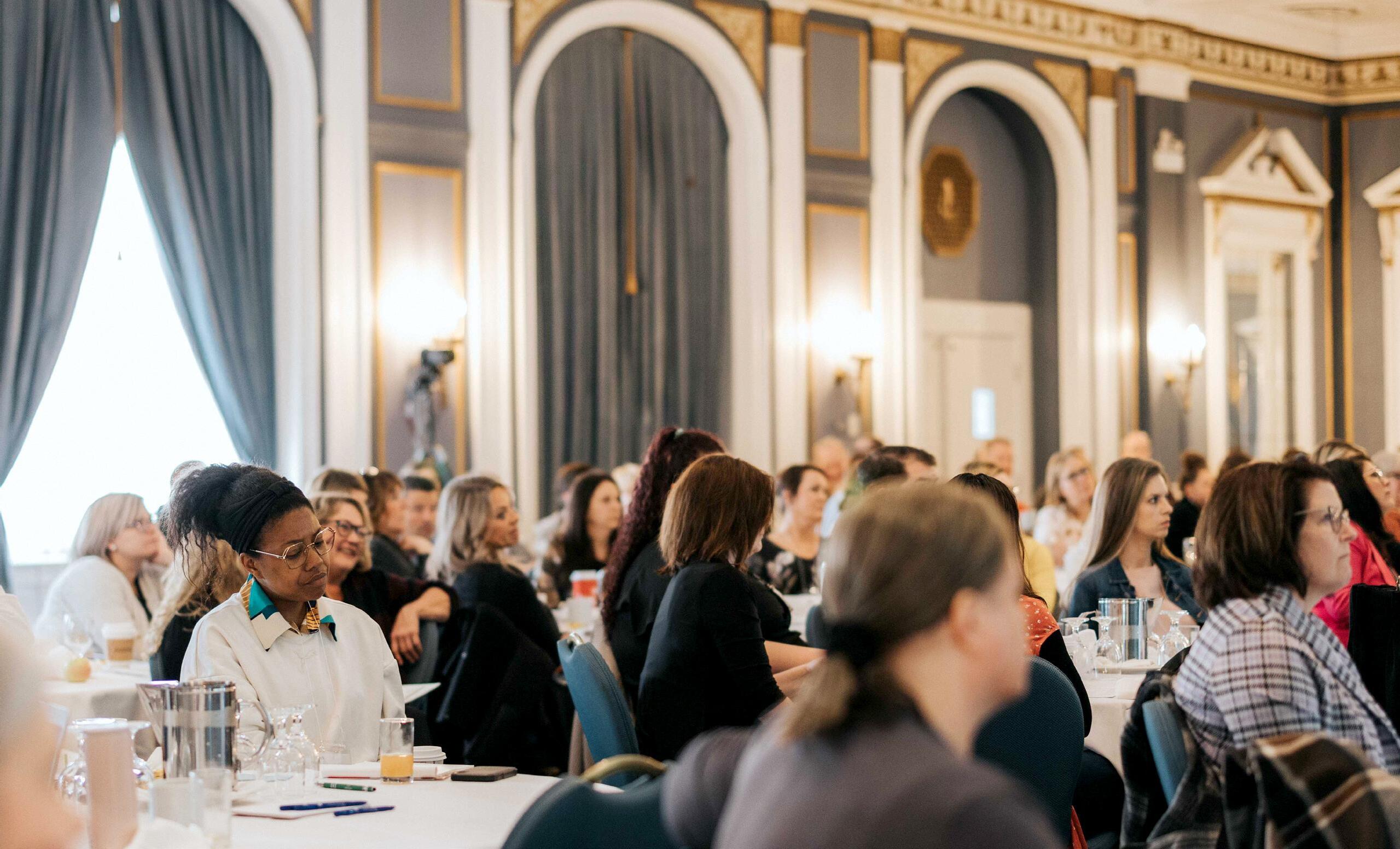
A highlight of the event was listening to keynote speaker Dr. Trista Hollweck. Hollweck is a former teacher, vice principal and school district consultant. She holds a doctorate from the University of Ottawa and is director of the Atlantic Rim Collaboratory Education Project. ARC is a policy learning network that brings together education ministers and professional leaders from six countries and two Canadian provinces, Saskatchewan and Nova Scotia.
A self described “pracademic,” Hollweck considers herself a bridge between academia and real world experience, saying she “sits across research in practice. I have a foot in both worlds all the time. I think about the world of scholarship, but I also really want to know how it’s implemented in schools and how we can take what we learn in schools back to research.”
In her keynote address, Hollweck spoke about leveraging support and expertise within school and system networks,
and creating a culture of professional growth. Drawing from her research, she shared key findings and insights into some of the challenges facing educators as a result of the pandemic and where there are opportunities for strengthening teaching and learning in Saskatchewan. Hollweck said across all her research projects, it is clear teachers care about students.
“I believe if we focus on educators, then the educators’ engagement and well being increases and that supports the students,” says Hollweck.
The symposium was part of the STF’s new Leadership initiative. Launched in 2022, Leadership will support members and provide learning, growth and resources in four areas of focus:
• Governance leadership
• Indigenous leadership
• Principal, vice principal and assistant principal leadership
• Women in leadership
The concept for the initiative was borne from the recognition that there was a gap in available tools and resources for leaders in education. It aims to provide existing leaders opportunities to grow, and give aspiring leaders tools and resources to begin their journey.
For more information and resources from STF’s Leadership initiative, visit www.stf.sk.ca > Professional Resources > Leadership
BRITTANY BELLAMY
26
CERTIFICATE OF EXTENDED STUDIES IN INCLUSIVE EDUCATION

Help your students with diverse learning needs succeed.
The Saskatchewan Ministry of Education provides incentives to earn this certificate.

more at knowmoredomore.ca
Learn
27
Why I MADE NOISE for Public Education
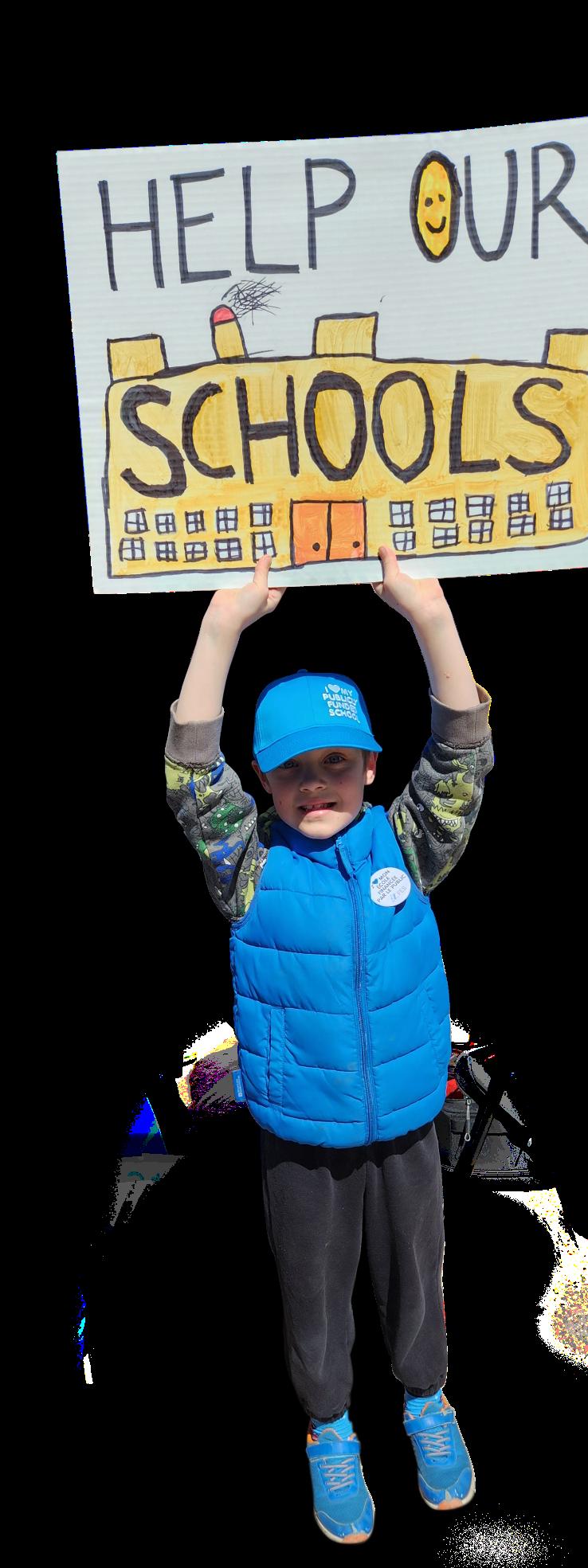 BY STAFF WRITER
BY STAFF WRITER
From teachers to parents and students to community members, everyone at the Rally for Public Education shared a common belief that government must do more to support public education and students.
Here’s why a few of the more than 3,500 people in attendance at the rally showed up to make noise!
Helen Molloy
Retired substitute teacher at Regina Public Schools
Hi. I’m Helen Molloy and I worked for the Regina Public Schools as a substitute teacher for 20 years. I’m here because there’s a crisis in this province and the crisis is everywhere. In the health care system, we don’t have enough nurses. We’re going to have that problem until our education catches up. And we can train our young people to be nurses, doctors, vets, dentists, and all the things we need to have a strong province and it starts with basic public education.
Carol Gossner
Retired teacher from the Muenster area in the Horizon School Division
The Saskatchewan Party has a death by a thousand cuts approach to anything publicly funded – it needs to stop.
Current Teacher
I’m here because I want to support my peers. My colleagues and I think we deserve a lot more in this province. Changes need to be made that help with public education and allow us to be better teachers.

COLLECTIVE WISDOM
ANGELA BANDA 28
Concerned Citizen
I’m here to support the rally because of the lack of keeping up with inflation for education. Our kids are our most important asset and if we want our province to grow and to prosper, we need to take care and help that asset develop into the best possible citizens that are going to take care of us all in the future.
Genevieve Prevost
Teacher from Greater Saskatoon Catholic Schools
The cuts to education need to stop. Our students deserve so much better. Premier Moe and this government are not doing [enough] for us and the future of our province.
Teacher
Teachers help shape the future students in this country. Education is a basic human right. Government should look at this problem and help us to grow. Listen to the concerns and challenges, and let our education standards rise in Saskatchewan.
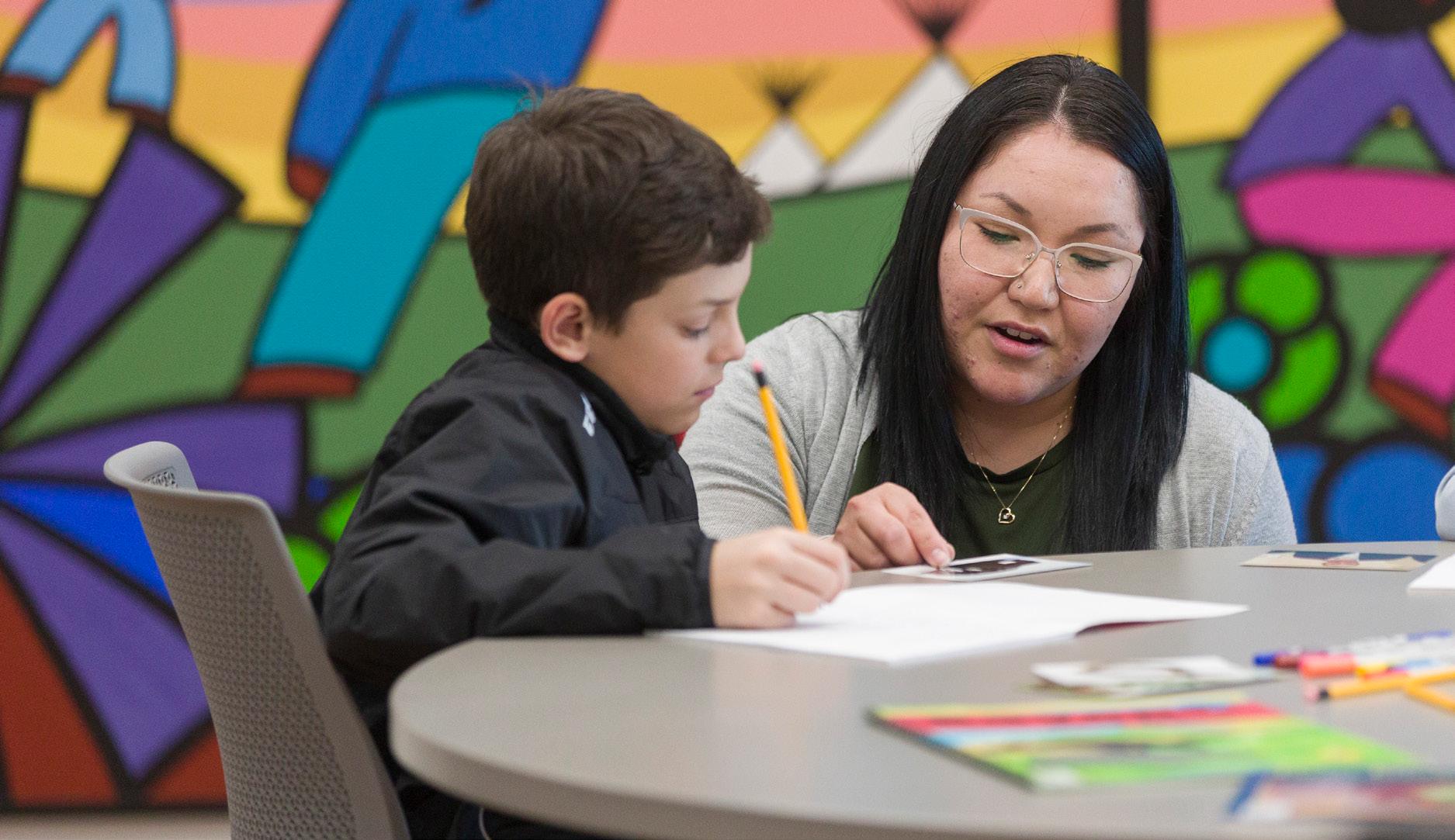
Parents
We’re here to support the STF. My daughter is a vice principal in an elementary school in Saskatoon. We believe in the school system and that it’s going to help our kids. Our kids are our future and our grandkids. And so, we’re here to support and we’re doing a sit in!
Group of Four Retired Educators
We are four retired educators. We are proud to be here –to support teachers and students in our classrooms today, and to speak out for additional funding so that our kids can have the best possible education.
Pat Atkinson
Former MLA and Minister of Social Services, Health, Education, Crown Corporations and Finance
I’m proud to be here, supporting kids and their teachers, and all of the support staff and our public education system. It is absolutely atrocious what’s happening in our classrooms and to our kids. So, we hope that the government will pay attention to this huge crowd today.
COLLECTIVE WISDOM Educational Technology and Design • Curriculum Studies • Indigenous Languages • Indigenous Land-Based Education • Educational Psychology • School and Counselling Psychology • Special Education • Educational Administration • Educational Foundations • Scholarship of Teaching and Learning • English as an Additional Language Education ACHIEVE YOUR TEACHING AND CAREER GOALS WITH OUR GRADUATE AND CERTIFICATE PROGRAMS grad.usask.ca/education
29
Laird Cares Program
BY STAFF WRITER
A Model of Schools Contributing to Community

A small rural school is having a big impact in the village of Laird, population 267, thanks to an inspiring new program called Laird Cares. The idea for Laird Cares was borne out of a desire by school leaders at Laird School in the Prairie Spirit School Division to help their young protegés know the power of giving while at the same time learning valuable leadership skills.

In September 2022, staff members Michelle Fong, a teacher, and Laura Dahl, the school’s administrative assistant, recruited a few students to become leaders. The students learned how to introduce event ideas, create awareness for events and model helpfulness and a spirit of giving to their peers and their community.
“Our intention is for these students to inspire others and take the skills they learn to their high school years, being future leaders there,” Dahl says.
Fong and her colleagues agree that students are recognizing they can have a big impact by giving back to others, by being brave with leadership, by learning to look for helpers and becoming helpers and by celebrating their community. “A small rural school like Laird School allows for student growth and for programs like Laird Cares, where staff can work one on one with students and students can work in small buddy programs,” Fong says.
Students learn how to be leaders and discover the joys of giving back
The Laird Cares Leadership Team, (left to right): Kloe R., Jacy S., Holden F., Tyson S., Campbell F., Ryelle P., Jaelyn E., Tyla P., M’Kinley D. Photo courtesy of Laird School.
30
Laird Cares buddy groups were created with older students mentoring younger students through various projects. The group members remain the same for the entire school year, creating continuity for the younger members and allowing them to forge strong and trusted relationships with their mentors. At the same time, mentors learn valuable leadership skills as they guide and support their younger partners.
Beginning in September, the young leaders in training reached out to their local community with specific offers of help. They raked leaves in neighbourhood yards and created Christmas cards for seniors in the community. “The seniors responded with joy, bringing treats to the school and joining our students in our Reading With Seniors program,” Dahl says.
As the program evolved, the leadership team planned a series of Laird Cares leadership team spirit days. Students showcased the idea with a mini fashion show and slide presentation.
“They were confident and organized leaders, demonstrating how far they have come already this year and how the joy of giving back to others has removed some of the nervousness that can come with leading,” Dahl says.
More spirited events are on the horizon for the young leaders at Laird School. So far, students are having fun and learning to lead with gratitude.
Jaelyn, a student at Laird School, says, “Being on the leadership team means I get to help others, which is important to me. It feels good to give back. It is teaching me responsibility.”
Ryelle, another student, says, “Being on the leadership team is fun. I get to be a part of something with a group of people. I like helping others and it is a place where you get to share your ideas and be heard.”
Corinne Dutka, school principal and teacher, emphasizes the important connection between schools and rural communities. “In a small community, everyone is important. The motto of the village is The Community That Pulls Together and we think this younger generation is going to grow up with those values as well. We are excited for all that the future holds for our bright young students,” Dutka says.
Foster curiosity, critical thinking skills and empathy by learning about Saskatchewan’s diverse histories through WDM exhibits, artifacts, archival material, inquiry-based learning opportunities and hands-on experiences.
For information on visiting a WDM, in-Museum school programs, teacher-led experiences, virtual programs and resources for your classroom visit wdm.ca/education
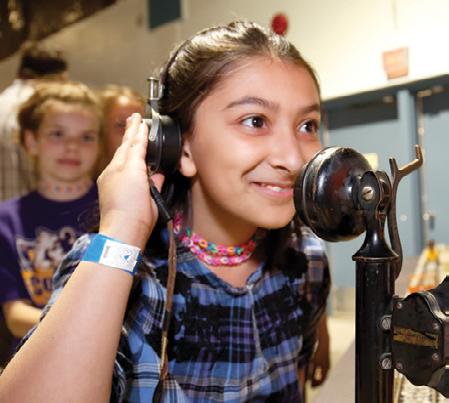
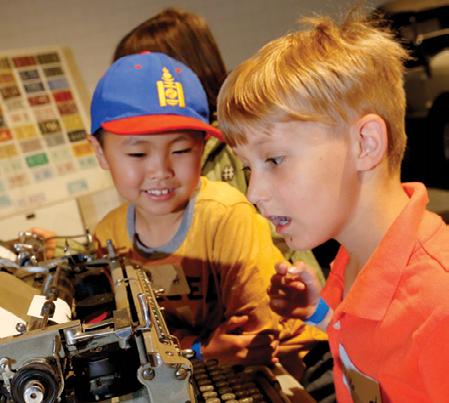

What is history?

How do we know what really happened in the past?
How does history shape our present-day realities?
MOOSE JAW NORTH BATTLEFORD SASKATOON YORKTON WDM.CA
A SASKATCHEWAN WHERE EVERYONE BELONGS AND HISTORIES MATTER
31
The joy of giving back to others has removed some of the nervousness that can come with leading.
The Saskatchewan Teachers’ Federation Executive, which is elected by Council from its ranks, manages and regulates the activities of the Federation. The members must ensure the organization is acting in accordance with its legislated mandate and fiduciary commitments, and among the responsibilities is to establish and appoint members of the benefit plan boards and various committees.

Meet Your Executive
Executive elections were held at April’s Annual Meeting of Council for President, Vice President and four member at large positions. Samantha Becotte was acclaimed to the role of President and Nathan Bromm was elected as Vice President. Kirsten Fritsch, Amy Korver and Whitney Paul Joseph were re elected as members at large, and Peggy Welter was elected to her first term as a member at large.
SAMANTHA BECOTTE
STF PRESIDENT
Prior to becoming STF President in 2022, Samantha Becotte taught at Lloydminster Comprehensive High School in the Lloydminster Public School Division. She lives north of Lloydminster on an acreage with her husband and two children.
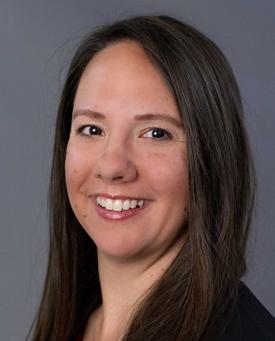
Samantha taught dance through her high school years and enjoyed helping the students work through challenges and find success. Her original plan was to focus on medical research but that changed when she realized she had a passion for mathematics and wanted to become a teacher to help students discover that same passion.
Starting out, Samantha knew little about the role of the STF. When she started teaching in Saskatchewan after earning her teaching degree at the University of Alberta, she took the position of school staff liaison to learn about the organization and its important role in the province’s education system. As STF President serving a second term, Samantha hopes to continue to inspire teachers to stand together and demand more for themselves, their colleagues and their students.
“Teachers know that we cannot continue down the current path of underfunding education and I hope that we can use our collective strength to change our government’s course. So often, we as teachers put the needs of everyone else ahead of our own –constantly giving all our time, our energy, and even our money, to support the students in our classes. We do this because we care about the children we teach. Chronic underfunding and years of cuts to supports and services have increased the demands placed on teachers. While we work hard to fill those gaps, it is not sustainable and should not be a longterm expectation.”
Fun Fact
Samantha and her family live on an acreage “in the middle of nowhere,” according to her youngest daughter. Samantha enjoys sitting under the covered deck in the evenings listening to the birds or a good rain shower.
NATHAN BROMM VICE-PRESIDENT
Nathan Bromm is principal and a teacher at Rocanville School in the South East Cornerstone School Division and lives in nearby Moosomin. Nathan
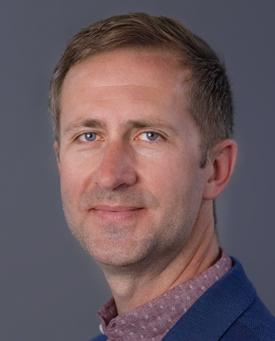
32
recalls being inspired to teach at a young age, learning from his young students as a swimming instructor and summer program leader. He also credits great teacher role models for his career choice.
Nathan became active with the STF after learning about the organization in university. In his second year of teaching, he witnessed first hand the impact of an amalgamation on colleagues – from having to navigate multiple legacy agreements to new school division structures. Seeing their frustration motivated Nathan to become involved in his local association.
Nathan hopes to continue to bring the voice of teachers to the table and make forward thinking decisions that support members through the host of programs, services and benefits the STF offers.
“These are challenging times, when classrooms have become increasingly complex, as educators recognize and diagnose the many learning needs and complexities of children and families with everthinning resources. My role is to listen, question, challenge, collaborate and help ensure the STF is responsive to changing political, economic and social climates that our members live and teach in.”
Fun Fact
Nathan loves being outside doing almost any activity with his family – from water sports and camping to biking and rollerblading, or just hanging out on his deck or around the firepit.
NEAL BOUTIN
Neal Boutin lives in Gull Lake and teaches at Gull Lake School in the Chinook School Division. Back in the 1980s, Neal’s good grades meant he was exempt from writing many of his final exams. He knew the only way to hang out with his friends whose grades didn’t qualify them for an exemption was to help them study. Neal remembers designing math problems and history scenarios to make their study sessions purposeful and fun. Neal’s history teacher suggested he consider teaching as a career. And so, it began.
Neal’s first principal, Tom Flath, encouraged him to join his Local Implementation and Negotiation Committee in 1995. For the first 15 years of his career, he was highly focused on local issues, mainly as a LINC chairperson and negotiator. His motivation then, as it is now, was to serve members by
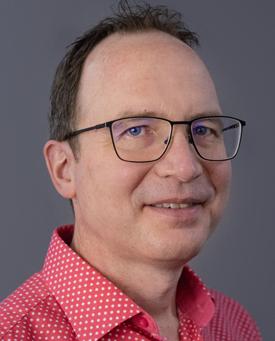
enhancing the standing and function of the profession. He encourages teachers to dig deeper, ask questions and work towards continually improving their school, their practice and their working conditions.


“With the STF Executive, I want to continue the work of Truth and ReconciliACTION within the organization and help reach a new collective agreement that serves the needs of the membership and the future needs of public education within the province.”
Fun Fact
Neal loves heavy metal music and looks forward to creating a social media presence on the topic in the not too distant future.
CRYSTAL SCHINDEL
Crystal Schindel is a principal and teacher at Hafford Central School in the Living Sky School Division and lives in North Battleford. Crystal wanted to be a teacher since she was a child, always feeling at home in the classroom and in school settings.
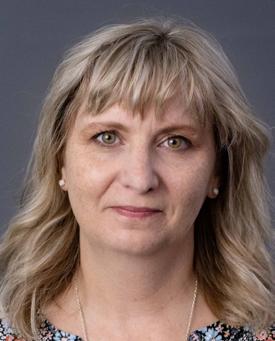
Crystal’s first encounter with the STF came during her time at the University of Saskatchewan, where she discovered the organization’s work and mission. She remembers being “shoulder tapped” after a vacancy became available on the Horizon Teachers’ Association executive. From the moment she left the first meeting, she was inspired with the idea of bettering her profession in her home province.
“As a member of the STF Executive, I hope to inspire educators to become passionate about their profession and to create a place where teachers feel empowered to speak up about the conditions they face. With one voice, we are strong enough to create the change our schools need. Our students are the province’s greatest resource, and it is about time the provincial government puts them first.”
Fun Fact
Crystal is an avid hockey fan. She still plays and has coached and refereed throughout her life. Her favourite place in the world, during the winter, is on the ice.
33
MICHAEL HAGEL
Michael Hagel teaches at Luseland School in the Living Sky School Division in western Saskatchewan. Michael was called to teach when he realized he wanted a career where he never stopped learning and helping others to learn.
Michael jokes that he taught with a former STF President who promised him free food if he attended a meeting. From there he was hooked and set out to learn as much about the STF as possible. Soon he was involved in LINC and his local association before becoming a member of the STF Executive.
Michael notes that lack of adequate government funding and the increase of technology in the classroom make the job of teaching increasingly challenging.
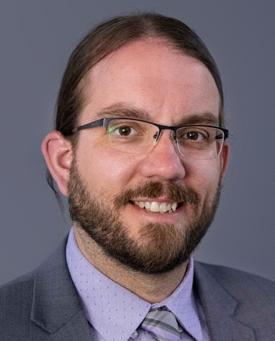
“Students are the forefront of what we do. I think there needs to be a few voices that put teachers first and I want to be one of those, especially for those who are thinking of leaving the profession. I have been there – no one can do this job alone. Ask colleagues for help, your school’s principal and viceprincipal, your division office, your STF. They all have the same goal: providing education to the students of Saskatchewan. If you ask, you will receive help meeting the many challenges we face.”
Fun Fact
Michael has driven at least one vehicle made in every decade since the 1940s and had 10 different vehicles during high school.
WHITNEY PAUL-JOSEPH
Whitney Paul Joseph teaches at Redvers School in Redvers in the South East Cornerstone Public School Division. She lives in a “tiny town” called Sinclair just across the border in Manitoba.
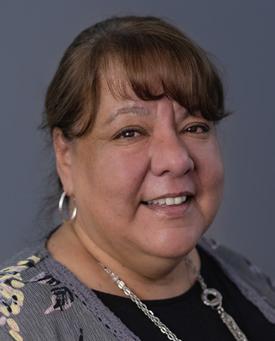
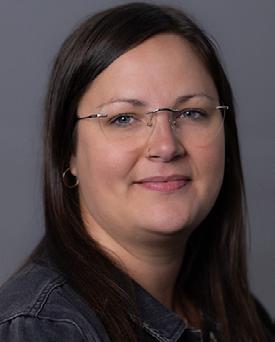
Whitney admits she had a lot of great teachers who inspired her when she was growing up. She recalls wanting to be an architect or an artist. At the same time, she enjoyed creating homework assignments for herself and her cousins. Today she marries the two, teaching arts education and visual art for Grades 6 through 12.
Whitney credits the STF with supporting her in some significant career and life decisions.
“In my third year of teaching, my world as I knew it came to a halt when my mom suffered a brain aneurysm. At the time I was teaching in Arcola. My school staff liaison encouraged me to contact the STF. The next thing I knew, my dad and I were invited to their offices to speak with someone. What was supposed to be a few days off school for me turned into two months of my dad and I staying in Saskatoon while my mom was in ICU and then recovery. I will never forget the reassurance I received from Milton Block (former senior administrative staff and Associate Executive Director). Our world had just imploded. Milton took the time to talk to me, a relatively new teacher, as well as my dad, who was a banker and knew little about the world of education, about a way forward. Words cannot express how important this was to me. When I think about the STF, it is this kind of support and guidance that helps teachers along their journey.”
Today, Whitney serves on the STF Executive and looks forward to continuing to grow both personally and professionally as an advocate for the “incredible educators” across the province.
Fun Fact
Whitney has an Old English Sheepdog (like Mr. Mugs) named Gus.
GWEN PAUL
Gwen Paul teaches at Bert Fox Community High School in the Prairie Valley School Division, and lives in nearby Fort Qu’Appelle. As a student in public school, Gwen realized that not many teachers looked like she did. She often thought she could help change this reality by becoming a teacher herself. After graduating high school, she pursued another route before being accepted to the Indian Teacher Education Program with the University of Saskatchewan. It was there that she met others like herself – people who shared her interest in education and could see a new world of possibilities.
Gwen remembers being invited to an STF meeting by some colleagues who noticed she tended to speak up at school. Following the meeting, she was instantly appointed as one of two councillors for her local association.
“I decided to run for the Executive when I saw it needed more representation of First Nations and Métis people. I hope to kick down doors for people who look like me and want to become more involved. And my goal is that we, as an Executive, continue to actively support, encourage and provide
MEET YOUR EXECUTIVE
34
space for that to occur. I am encouraged by the work our STF is doing regarding reconciliation and leadership, and hope that in the future I see more of the faces that look like me.”
Fun Fact
Gwen is a science fiction fan – not a “Trekkie” but more into Space Odyssey.
PEGGY WELTER
TERM BEGINS JULY 1, 2023
Peggy Welter teaches in Cupar School in the Prairie Valley School Division and lives in Regina. Peggy worked with children since she was a teen and loved watching them learn and experience new things. Knowing that a lot of students struggle with having a supportive adult in their lives, she wanted to be that person who helped support and encourage them to meet their goals.
Growing up in a “union supporting” family, she remembers paying attention to communication from the STF when she became a teacher. In 2011, she went to a bargaining rally at the provincial legislature. It was that moment that inspired her to get involved and from there she took on leadership roles locally and provincially until joining the STF Executive.
“I hope to bring a strong voice to the team, representing teachers, and contributing to discussions about bargaining and the collective voice. I want to see member involvement and connection as a focus to unify the collective even more.”
Perhaps most importantly, Peggy wants teachers to “take time to breathe and give themselves grace.”
Perhaps most importantly, Peggy wants teachers to “take time to breathe and give themselves grace.” Fun Fact
Peggy’s kindergarten yearbook says she wanted to be a zookeeper when she grew up.
AMY KORVER
Amy Korver teaches at Delisle Elementary School in the Prairie South School Division and lives in Saskatoon. Amy says she always wanted to be a teacher, enjoying the idea of bossing people around and pretending to be the teacher while playing school with her friends.
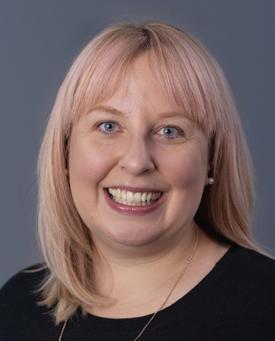
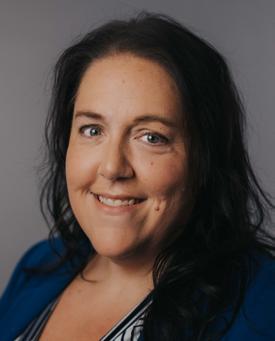
Amy first became involved with STF Professional Learning and admits she loved working with and leading teachers through professional development. She then became


involved in her local association as a school staff liaison, and next as an STF Executive member. She admits there have been many changes since she first began teaching. She remembers being the “cool teacher” who supplemented lessons with YouTube videos. Today the idea of videos in the classroom “isn’t quite as exciting,” she says.
“One of my main hopes as a member of the STF Executive has been to encourage more women to become involved in leadership positions at all levels of the STF. Since the birth of my son this spring, I hope to also show that having a young child shouldn’t be (and isn’t) a barrier to staying involved or becoming involved in the STF.”
Fun Fact
Amy and her husband hiked the West Coast Trail over six days several years ago, which is an adventure she hopes to do again soon.
KIRSTEN FRITSCH
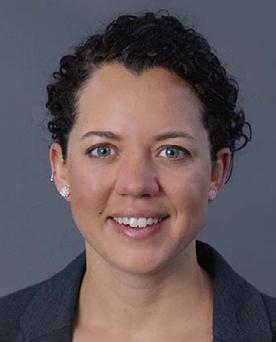
Kirsten Fritsch teaches at the Creighton Community School on Treaty 10 territory and lives in the community of Creighton. She was inspired to be a teacher by wonderful elementary school teachers and, by the time she was in sixth grade, she knew she wanted to be just like them and work with children. It was her 10th grade English teacher who helped solidify that aspiration.
Kirsten’s journey to the STF Executive started at the local level. She became involved with the Women in Educational Leadership Working Committee and developed an appreciation for the work the STF was doing in equity and inclusion. Kirsten believes in public education and its foundational role in society where teachers have an integral role to play in schools and communities.
“Our team at the STF is going to achieve a fair Provincial Collective Bargaining Agreement for the teachers and students of Saskatchewan. I am going to be part of a team that continues to champion professional teachers and upholds the integrity of our profession. We have a long road ahead of us and we need to support each other in our shared experiences. Regardless of your specialty or current assignment, we face challenges in public education in Saskatchewan that will be solved through solidarity and tenacity.”
Fun Fact
For their wedding, Kirsten and her husband took guests bowling.
35
New Offering Explores Treaty Outcomes Through Play in the Early Years
 BY STAFF WRITER
BY STAFF WRITER
YOUNG LEARNERS IN THE PLAY-BASED EXPLORATION ALSO BENEFIT FROM PARTICIPATING ELDERS AND KNOWLEDGE KEEPERS
An exciting and thoughtful new offering from Saskatchewan Teachers’ Federation Professional Learning, called Inviting Exploration of Treaty Outcomes Through Play in the Early Years, is helping prekindgergarten to Grade 1 teachers, staff and administrators engage young learners in an interactive and fun exploration of the Saskatchewan Education Treaty Outcomes.
Connie Molnar, associate director of STFPL, says feedback from early childhood educators inspired the idea. “We work closely with teachers and partners in education,” Molnar says. “In listening to them, we discovered many were looking for support to incorporate treaty outcomes in their play based programs.”
ORIGINS OF TREATY EDUCATION
In 2007, education around the history and content of treaties in Canada became mandatory for learners from kindergarten to Grade 12. In 2013, the Saskatchewan Ministry of Education established a series of learning outcomes and indicators based on four subject areas: treaty relationships, spirit and intent of treaties, historical content of treaties, and treaty promises and provisions.
According to the outcomes, students in kindergarten would get to know their community by exploring the concepts of diversity, their connection to nature and
land, the idea of promises and the importance of keeping promises. In Grade 1, students would discover the value of relationships and connections, the concept of sharing, the many ways that people meet their needs from nature and living on the land, and what is meant by “we are all treaty people.”
THE ART OF INVITATION

During the day long session, Molnar says participants learn the art of inviting their students to play and explore in ways that relate to the treaty outcomes.
“When an educator creates an invitation to play and explore to their students, they collect materials and resources for students to engage with, ask questions about, and grow their understanding,” Molnar says.
Materials might include dolls, puppets, beads, yarn, string, paper or crayons as well as natural materials like bark, leaves, stones and moss.
“For example, a teacher might read a storybook about promise keeping and include real materials or images about promises, such as wedding bands, handshakes, crossed fingers,” Molnar says. “As the children are interacting with the materials, conversations about treaty promises can be added to the discussion and interactions, and at the same time students may also be engaging in outcomes from other curricula, such as language arts as they develop new vocabulary and oral language, or mathematics as they count items for their creations.”
IN THE CLASSROOM
36
BRITTANY BELLAMY
TREATY OUTCOMES THROUGH PLAY RESOURCES AVAILABLE FROM THE EMMA STEWART RESOURCES CENTRE
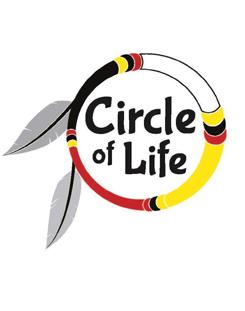
This is the first kit in a series that beautifully depicts First Nations worldviews, traditional knowledge and cultures. Eleven guided reading booklets on topics such as powwows, smudging, and getting ready for the feast, as well as a teacher DVD of support materials are included.

Written by Sandra Samatte and Susan Lam, this is one title in the Grandmother/ Grandfather series which introduces young students to First Nations traditions and celebrations. The book clearly outlines the purpose and processes of talking circles.

Explore the rich history and culture of the Métis in these engaging resources that were written by Joseph Jean Fauchon and illustrated by Sheldon Mauvieux.
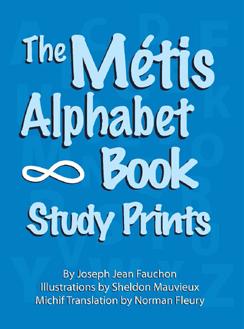
Discover treaty terms and processes in this alphabet book by Maxine Hadubiak. The accompanying guide includes discussion questions and student activities.
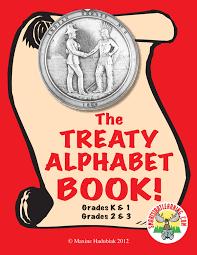
As they work together in their home and garden, Charlie’s grandmother shares wise stories with him about how Mother Earth provides us with everything we need to live, as well as ways to conserve and protect it. This book was written by Leanne Flett Kruger and illustrated by Marie-Micheline Hamelin.
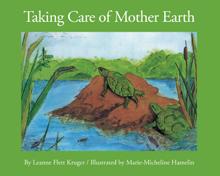
Written by Calvin Racette and Jackie Taypotat and illustrated by Leah Dorion, this kit explores themes of identity, relationships within families and communities, and our connection to Mother Earth. Six copies each of six student books and a teacher’s resource are included in this classroom set.
Written in English and Michif, this sequel to Road Allowance Kitten, relates the experiences of Métis families who were forcibly removed from their homes on road allowances and relocated, while subsequently having to endure broken promises. The book was written Wilfred Burton, illustrated by Christina Johns and Translated by Norman Fleury.

ELDERS AND KNOWLEDGE KEEPERS OFFER VALUED EXPERTISE AND PERSPECTIVE
A key part of the training is the participation of Elders and Knowledge Keepers who bring valuable perspective and expertise in traditional methods of teaching and ways of knowing in the First Nations, Métis and Inuit cultures.

“One of the highlights that we hear from participants is the impact of having Elders and Knowledge Keepers as part of the day of learning, and how important that is for them to move forward in their understanding of the importance of treaties in our province and for our students,” Molnar says.
This joyful picture book by Julie Flett reminds children that animals play, just as they do. Based on the Cree teaching of wahkohtowin, interconnectedness and play, the book includes the Cree and English names of the animals featured in the story.
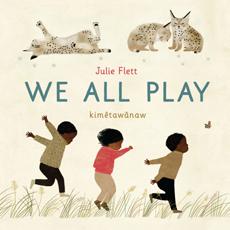
For divisions who host their own sessions, STFPL works with division staff, Elders and Knowledge Keepers in their communities to ensure the teachings are appropriate and relevant.
STFPL will offer Inviting Exploration of Treaty Outcomes
Through Play sessions virtually or in-person at least twice in the upcoming school year as well as to divisions who would like to host their own session. To learn more, visit the STF Professional Learning catalogue and the STF Events Calendar

IN THE CLASSROOM
37
Addressing Teacher Mental Health Begins in Schools
BY SAM HAMMOND, PRESIDENT, CANADIAN TEACHERS’ FEDERATION
COVID 19, lockdowns and emergency remote teaching and learning wreaked havoc on the public education community. In the pandemic’s wake, we have been left with a mental health crisis that has taken an enormous toll, threatening not only the lives and careers of teachers and educators, but Canada’s own publicly funded public education
and educators were experiencing long term anxiety, stress and depression due to increased expectations from work and the blurred realities of work and home life. But the pandemic didn’t create the teacher mental health crisis – it made it worse and made it public for all to see. Now we must work to address it.
from trauma, resilience, compassion fatigue, psychological safety and well being, to name but a few. Once we begin, mental health experts will lead monthly online sessions with teachers and education workers to guide them to dive deeper on the specific areas.
This pilot program is unique because it’s being tailored to the needs and day to day realities of teachers and education workers. Also, the last thing teachers need is another task added to their long lists, which is why the program will be structured within their workday. It’s based on the collegial model, so it’s familiar and proven to be effective.
By the completion of the pilot project, the CTF/FCE hopes to understand more about how programming for whole school mental illness prevention and mental health promotion can support educators in post pandemic recovery and beyond.
Now, with the financial support of the federal government, and specifically the Public Health Agency of Canada, the Canadian Teachers’ Federation has launched a pilot project focused on improving the mental health of teachers and education workers.
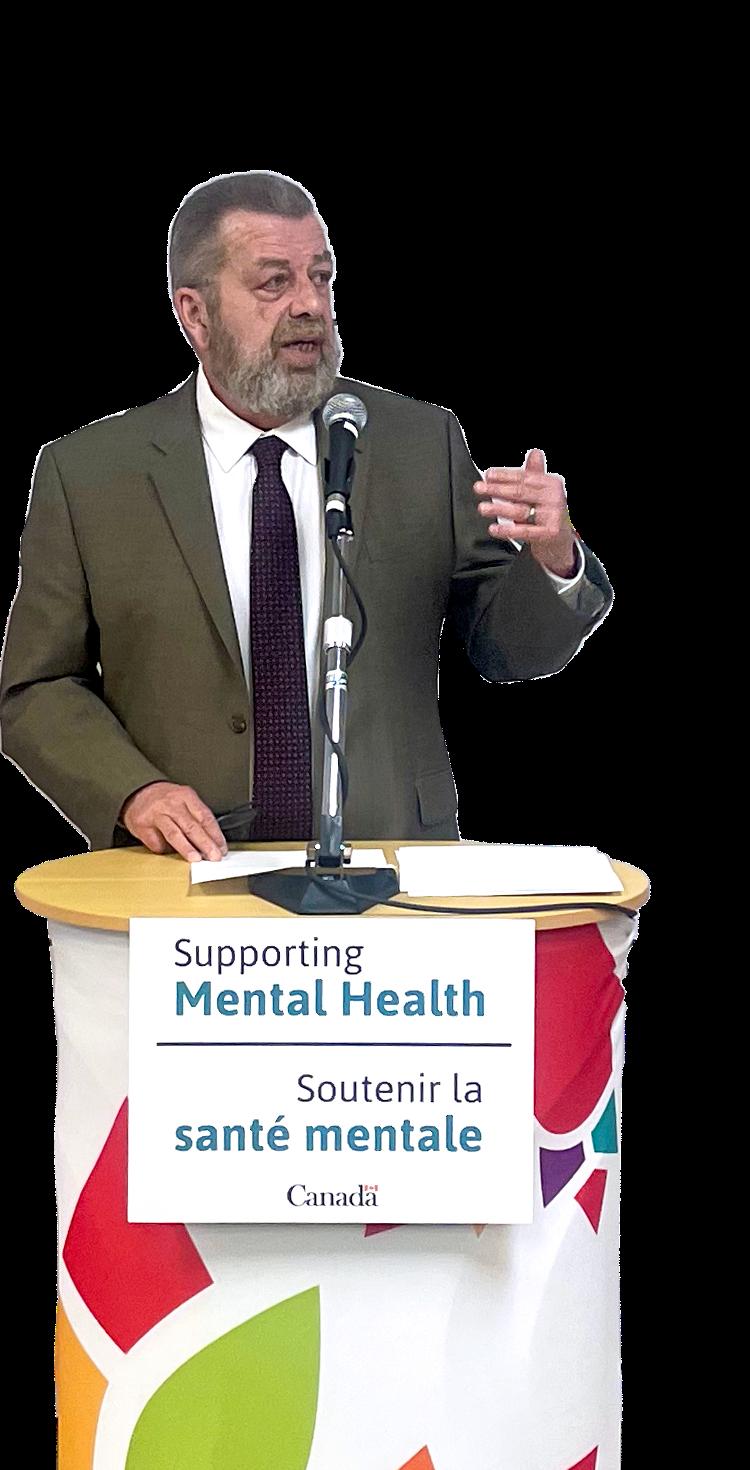
By working with mental health experts, including our partners at the Centre for Addiction and Mental Health and the University of Ottawa Faculty of Medicine, we hope to focus on topics ranging
With the collaboration of CTF/FCE member organizations, we have selected three K 12 schools in three jurisdictions that represent the vast diversity of schools and communities across Canada. They include English and French speaking populations, urban and rural settings, and elementary and secondary schools, as well as small and large student and teacher populations.
This project, which is set to run from September 2023 to February 2024, is a step in the right direction to ensure teachers and educators have the necessary tools to address mental illness and trauma through the next phases of pandemic recovery.
This pilot program is unique because it’s being tailored to the needs and day-today realities of teachers and education workers.
Sam Hammond, CTF/FCE President.
38
Photo courtesy of CTF/FCE.
Superannuated Teachers of Saskatchewan Celebrates 50 Years
BY ROD DRABBLE, STF COMMUNICATIONS
The Superannuated Teachers of Saskatchewan celebrated 50 years of promoting the welfare of retired teachers during its Annual General Meeting on May 9 to 11 in Saskatoon.

“The STS is a valued part of the supports for retired teachers and plays an important role in maintaining the ties which bind us to each other and the profession,” says STS President Doug Still. “It has grown from fewer than 100 members in 1973 to more than 12,000 members today. An organization like ours that remains a vital part of the educational landscape is worth celebrating.”
The STS was formed at a time when inflation was drastically diminishing the ability of retired teachers to make ends meet. Advocacy with the provincial government for the needs of retired teachers was of primary importance. As the organization has evolved, it has continued to promote the welfare of superannuated teachers and has expanded advocacy efforts to include the needs and interests of older adults in general.
Services provided by the STS begin with information opportunities for teachers who are considering superannuation and are making plans for their future. For its members, the STS Extended Health and Dental Group Benefits Plan provides security and reassurance during retirement.
Forty one local chapters located in Saskatchewan, Alberta and British Columbia provide an opportunity for superannuated teachers to connect. Chapters meet regularly to discuss issues of concern and maintain contact with former colleagues and are an integral part of the fabric of many communities across Saskatchewan. Activities include a variety of social, fellowship and informational events and many chapters are active in the volunteer work of their community.
“There is an adage that ‘once a teacher, always a teacher,’ and that is certainly true of our members,” Still says.
“Many retired teachers remain very active in the school communities as substitute teachers, volunteers, board members and general supporters. Retired teachers have a continuing and supportive interest in public education and lifelong learning, so it isn’t surprising they are as active as they are.”
More information about the Superannuated Teachers of Saskatchewan is available on their website at www.sts.sk.ca
Retired teachers have a continuing and supportive interest in public education and lifelong learning, so it isn’t surprising they are as active as they are.
39
PROVINCIAL COLLECTIVE BARGAINING 2023
FALL REGIONAL MEETINGS
Stay informed about bargaining. Attend a meeting to learn more and ask questions of the bargaining team.
September 25
September 26
September 27
Saskatoon
Prince Albert, Lloydminster, Yorkton
Regina, Melfort, Weyburn
October 2 North Battleford, Swift Current
October 4 Virtual
6:30 - 7:30 p.m.
No registration required.
Check out the Events Calendar in the coming months for more information.
stf-001215a / 20230529 PUBLICATIONS MAIL AGREEMENT # 40064493 RETURN UNDELIVERABLE CANADIAN ADDRESSES TO: SASKATCHEWAN TEACHERS’ FEDERATION 2317 Arlington Avenue Saskatoon SK S7J 2H8 Tel: 306 373 1660/1 800 667 7762 Fax: 306 374 1122
connect with us @SaskTeachersFed www.stf.sk.ca




































 BY STAFF WRITER
BY STAFF WRITER









 BY STAFF WRITER
BY STAFF WRITER








 BY STAFF WRITER
BY STAFF WRITER





















 BY STAFF WRITER
BY STAFF WRITER












